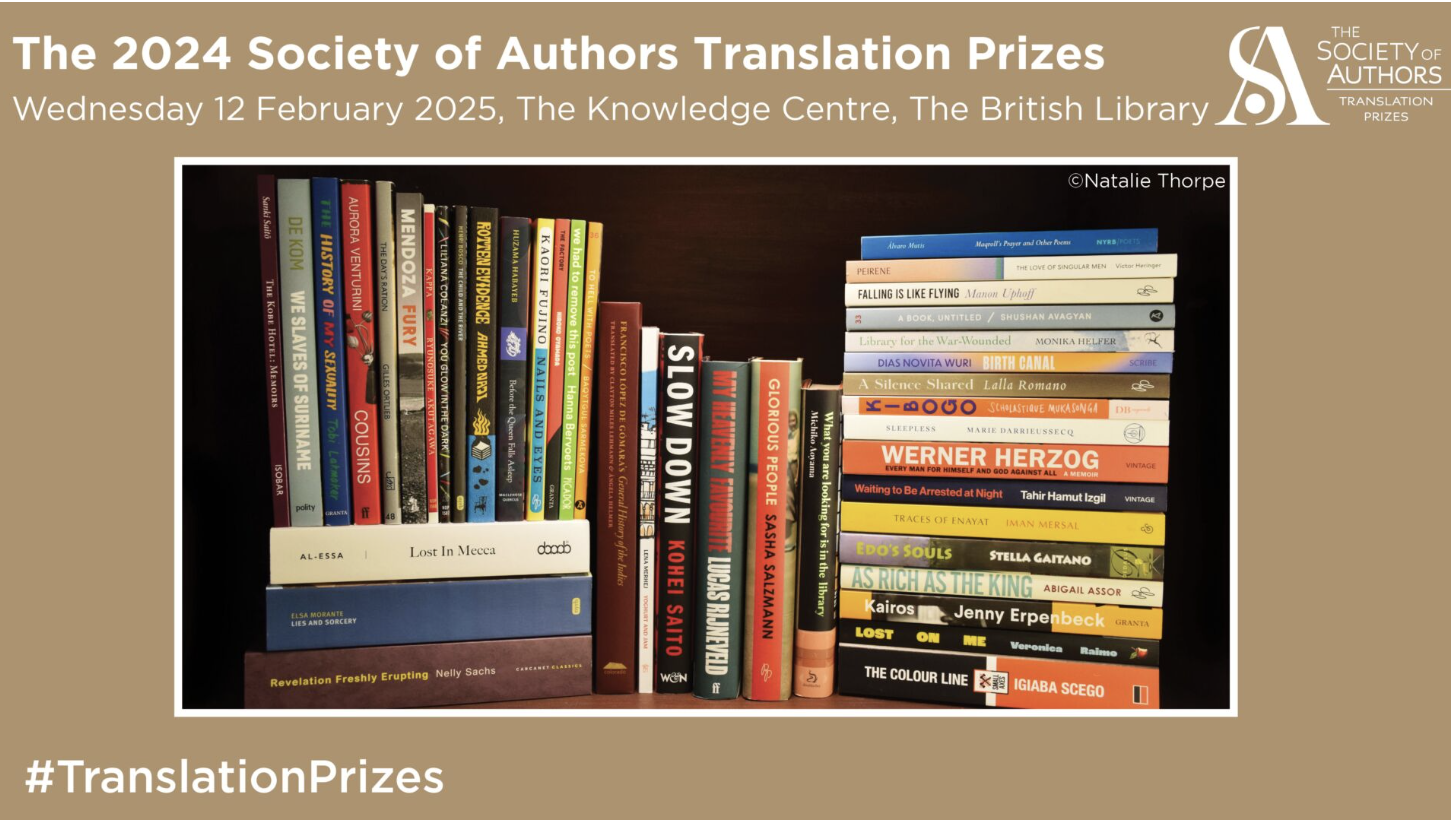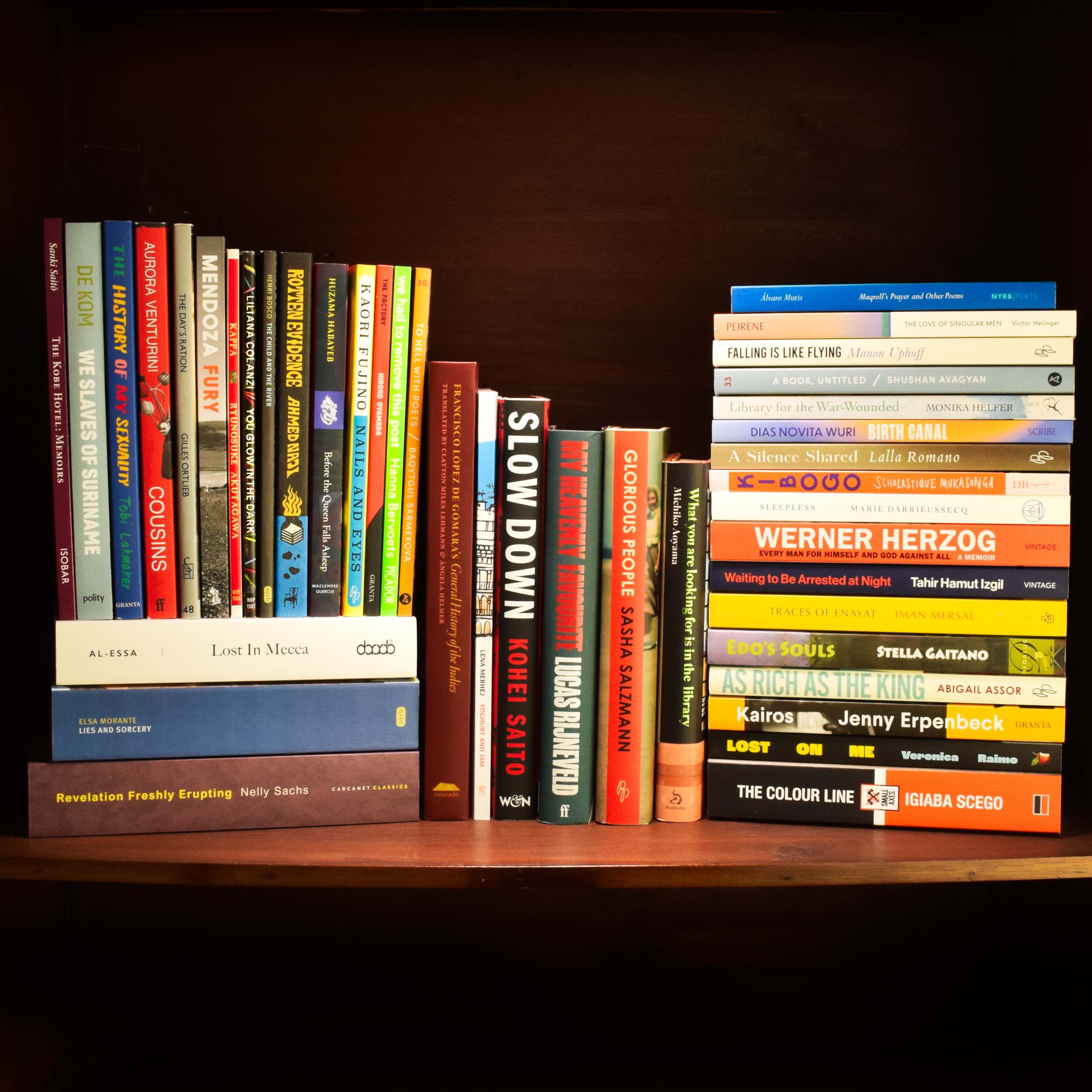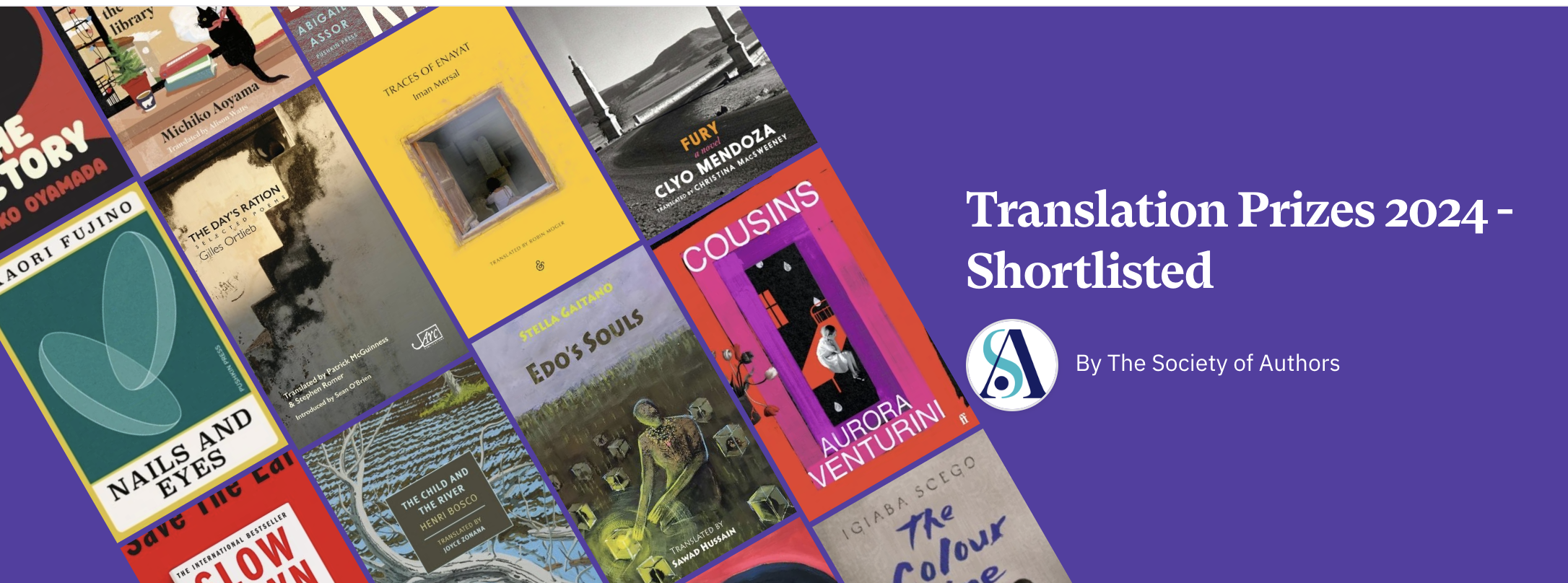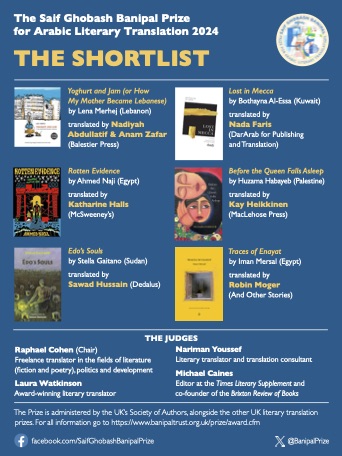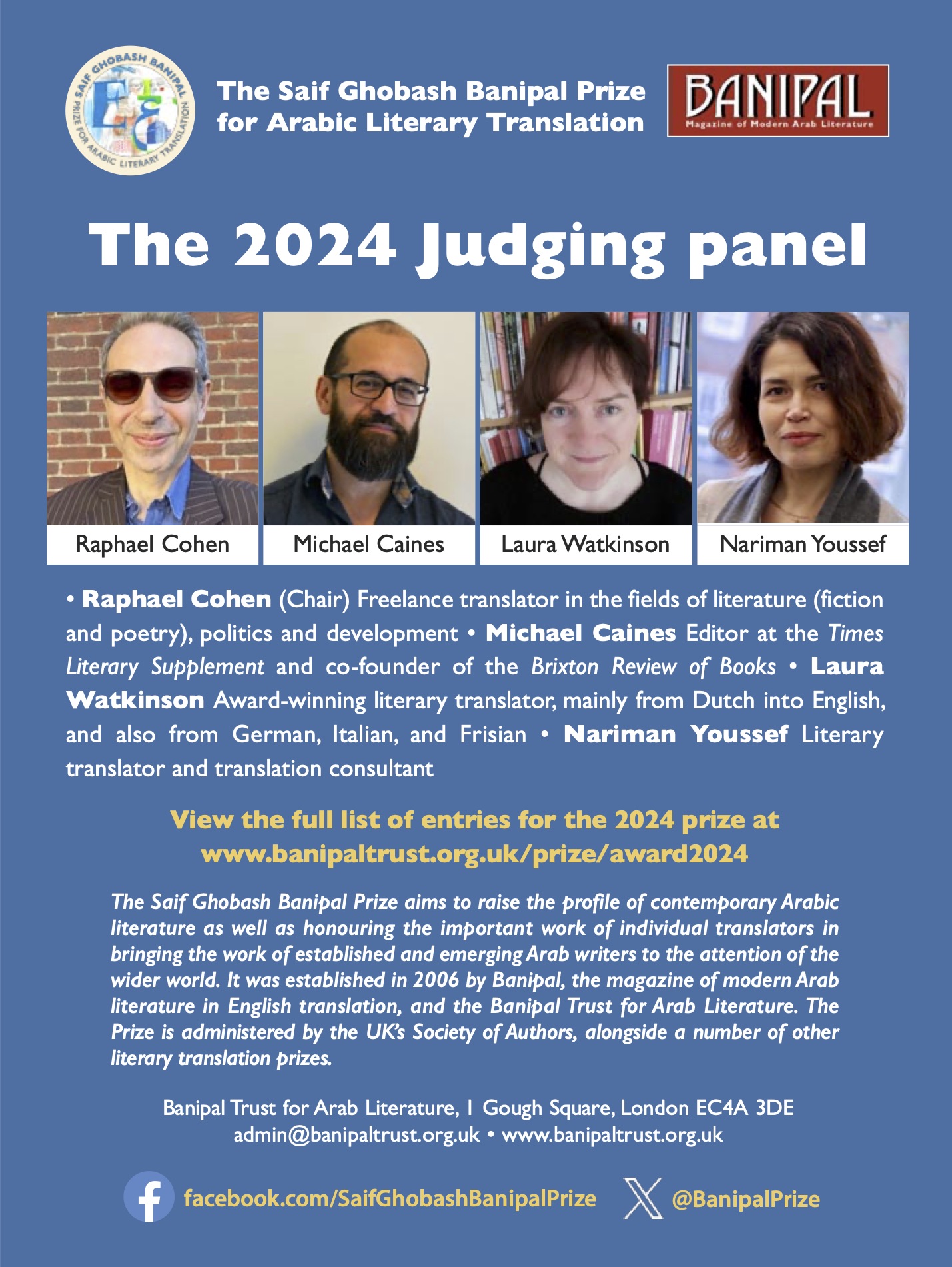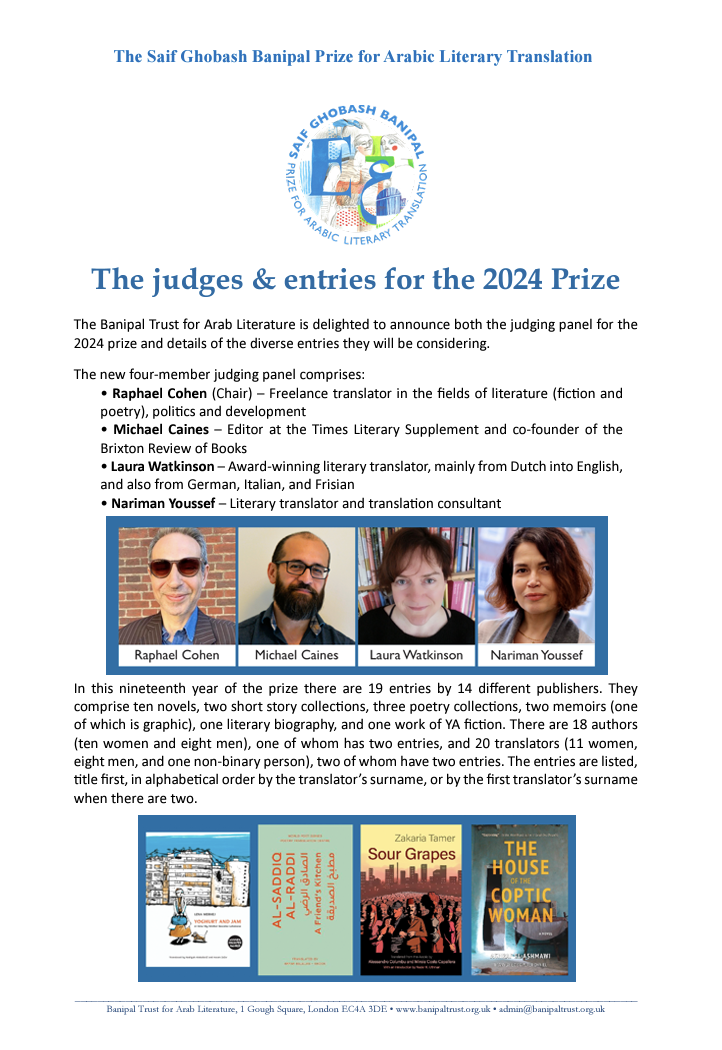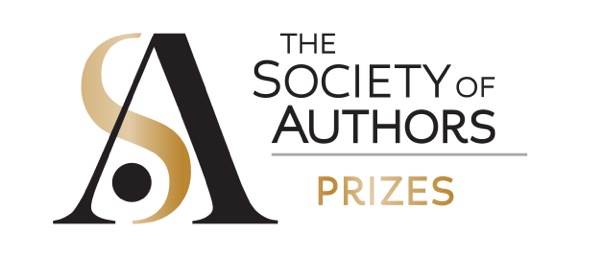The 2024 Saif Ghobash Banipal Prize for Arabic Literary Translation
Winner Shortlist Entries
Katharine Halls in conversation with chair of judges Raphael Cohen on 13 February 2025
CLICK THE IMAGE TO LISTEN TO THE VIDEO OF THE ENTIRE EVENT
*
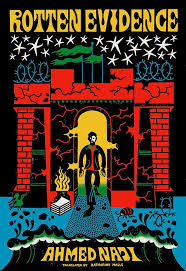
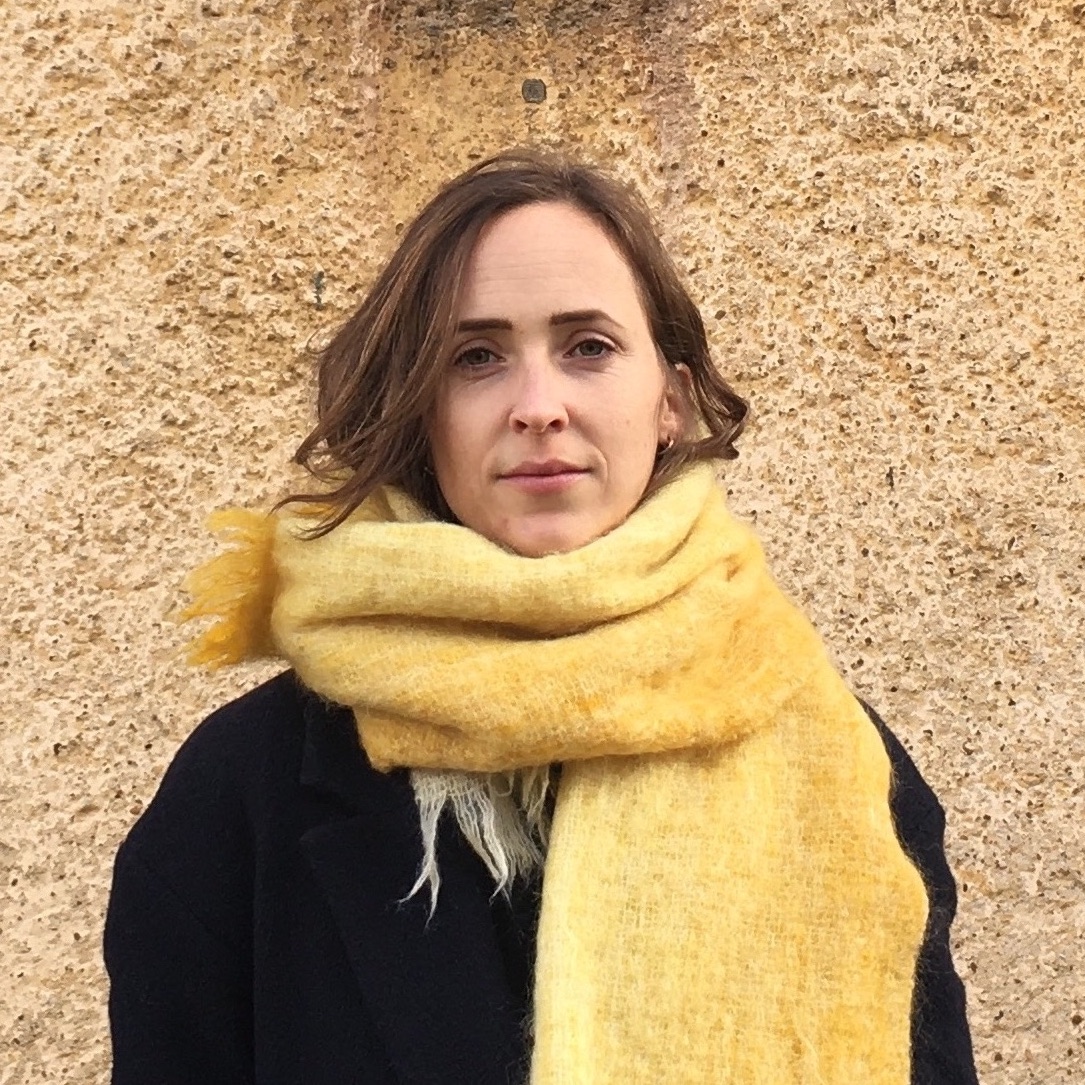
KATHARINE HALLS the winner
for her translation of
Rotten Evidence by Ahmed Naji
“A brilliant feat! A masterclass!
Naji’s humanity shines forth!”
The 2024 Saif Ghobash Banipal Prize for Arabic Literary Translation is awarded to Katharine Halls for her translation of Rotten Evidence by Ahmed Naji, published by McSweeney’s. Following the shortlist of six works that was announced on 2 December 2024, the judges have named Katharine Halls as the winner of the 2024 prize, to be awarded by the Society of Authors on 12 February 2025.
The judging panel of four comprised Raphael Cohen (Chair), freelance translator in the fields of literature (fiction and prose), politics and development, Michael Caines, editor at the Times Literary Supplement and co-founder of the Brixton Review of Books, Laura Watkinson, award-winning literary translator, mainly from Dutch into English, but also from German, Italian and Frisian, and Nariman Youssef, literary translator and translation consultant. For more information about the judges click here.
THE JUDGES’ REPORT
Selecting this year’s winner was not a straightforward task, given that three books were in close contention: Bothayna Al-Essa’s Lost in Mecca, translated by Nada Faris; Iman Mersal’s Traces of Enayat, translated by Robin Moger; and Ahmed Naji’s Rotten Evidence, translated by Katharine Halls. While commending the narrative verve of Lost in Mecca and its powerful handling of many taboo subjects, the judges agreed that the two finest works this year were both works of reportage and (auto)biography.
Traces of Enayat and Rotten Evidence portray Egyptian society and the consequences of writing; in the former case during the first decade of the Nasserite dispensation and in the latter during the fallout from the events of 2011. Both works have been admirably translated: fluent, creative and literary. In the end, however, we considered that Katharine Halls’s translation of Rotten Evidence deserved the prize. Halls not only gives a masterclass on the lexical and phrasal level; she also takes a scalpel to the structure of the original Arabic to produce a text that is more accessible to the English reader and less episodic than the original.
Judge Michael Caines commented, “Scathing, humorous, compelling: Rotten Evidence excels for its indictment of a broken political system but also for its visceral account of the author’s interior life in prison. Katharine Halls’s translation does full justice to Ahmed Naji’s depiction of a world that few outsiders will know or understand.”
Judge Laura Watkinson stated, “I particularly admire how Katharine Halls weaves elements of the Arabic into the text in a way that allows non-Arabic speakers to appreciate puns and to get a feel for prison slang. The style is fluent, colloquial and entertaining. Halls expertly renders the wide variety of registers in this book, from convoluted legal terminology to discussions about forbidden names for genitalia. A brilliant feat!” With reference to Traces of Enayat, Watkinson added that in any other year, it could have been the winner.
Judge Nariman Youssef added, “Halls seamlessly navigates culturally specific idioms and prison slang. Her bold choice to offer transliterations or literal translations of terms or phrases that might seem, at first glance, untranslatable – ‘truth is a mango’, ‘shambara’ – is justified time and again by the deft elucidations that she weaves into the text with inimitable simplicity.”
In Rotten Evidence Ahmed Naji writes, “James Joyce, who swore to express himself with the greatest degree of freedom possible – and never to serve home, fatherland, or church – said a writer had three weapons: silence, exile, and cunning. Well, Joyce, they put me in prison, and all I had left was laughter and rage.” Both laughter and rage are present, but Naji’s humanity shines forth.
REACTION FROM WINNER KATHARINE HALLS
“It is a wonderful honour to have been awarded the Saif Ghobash Banipal Prize for my translation of Ahmed Naji’s prison memoir Rotten Evidence, though a strange and difficult time to imagine celebrating anything. This past month has brought us joy and relief at the sight of former detainees walking free from prisons across Syria, where they have spent years in conditions of indescribable cruelty which so many others did not survive. It has also brought grief and despair, as our friend and comrade Alaa Abd el-Fattah, to whom a chapter of Rotten Evidence is dedicated, continues to languish behind bars in Egypt after more than a decade, while his mother Laila remains on hunger strike. It is impossible to forget, in these times of resurgent fascism, that writing about and against prison will always a revolutionary act. Ahmed Naji is a particularly brave, witty, and uncompromising writer, and I hope this accolade will encourage many more readers to pick up his excellent, indeed revolutionary, book.”
ABOUT THE TRANSLATOR

ABOUT THE AUTHOR
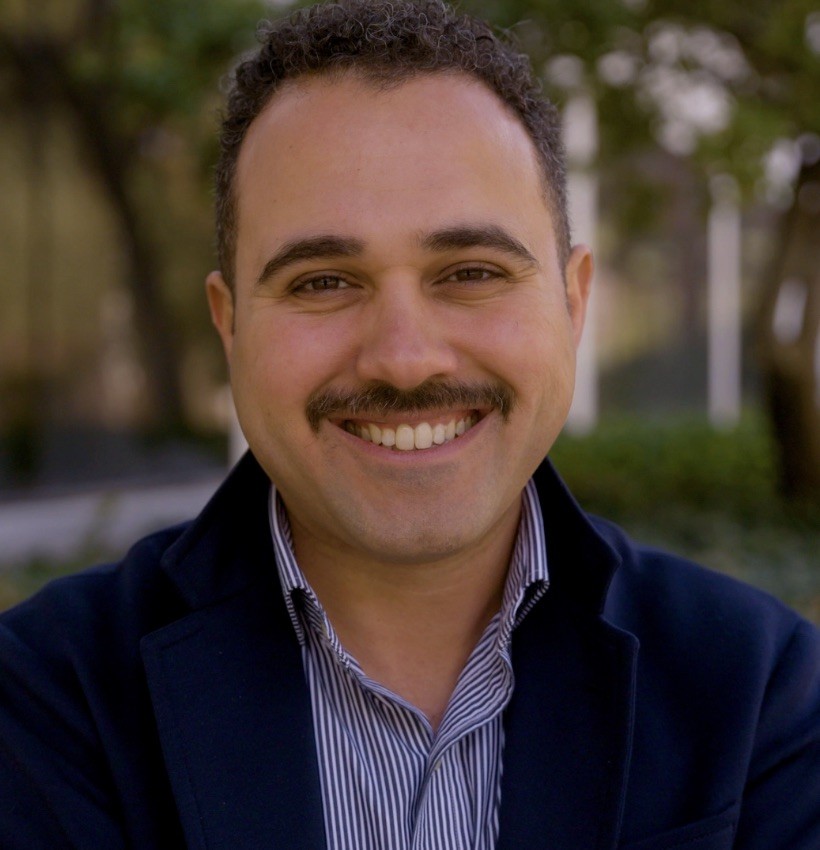 Ahmed Naji, born in Menyet Sandoub, Egypt in 1985, is a writer, journalist, documentary filmmaker and “criminal”. His memoir Rotten Evidence: Reading and Writing in an Egyptian Prison was a finalist in the 2023 National Book Critics Circle Award in the US. His novel Using Life (2014), whose English translation by Ben Koerber was shortlisted for the 2018 Saif Ghobash Banipal Prize, made him the first writer in Egyptian history to be imprisoned for offending public morality. He is the author of three other novels: Rogers (2007), And Tigers to my Room (2020) and Happy Endings (2023). Naji has won several prizes, including a Dubai Press Club Arab Journalism Award and a PEN/Barbey Freedom to Write Award. He was a City of Asylum Fellow at the Beverley Rogers, Carol C. Harter Black Mountain Institute in Las Vegas, where he currently lives with his family.
Ahmed Naji, born in Menyet Sandoub, Egypt in 1985, is a writer, journalist, documentary filmmaker and “criminal”. His memoir Rotten Evidence: Reading and Writing in an Egyptian Prison was a finalist in the 2023 National Book Critics Circle Award in the US. His novel Using Life (2014), whose English translation by Ben Koerber was shortlisted for the 2018 Saif Ghobash Banipal Prize, made him the first writer in Egyptian history to be imprisoned for offending public morality. He is the author of three other novels: Rogers (2007), And Tigers to my Room (2020) and Happy Endings (2023). Naji has won several prizes, including a Dubai Press Club Arab Journalism Award and a PEN/Barbey Freedom to Write Award. He was a City of Asylum Fellow at the Beverley Rogers, Carol C. Harter Black Mountain Institute in Las Vegas, where he currently lives with his family.
ABOUT THE BOOK
 Rotten Evidence
Rotten Evidence
by Ahmed Naji (Egypt)
Published by McSweeney’s, 17 October 2023
https://store.mcsweeneys.net/products/rotten-evidence-reading-and-writing-in-an-egyptian-prison/
Pbk ISBN: 9781952119835. £15.98
E-book ISBN: 9781952119842 £12.99
In February 2016, Ahmed Naji was sentenced to two years in prison for “violating public decency”, after an excerpt of his novel Using Life reportedly caused a reader to experience heart palpitations. Naji ultimately served ten months of that sentence, in a group cellblock in Cairo’s Tora Prison.
Rotten Evidence is a chronicle of those months. Through Naji’s writing, the world of Egyptian prison comes into vivid focus, with its cigarette-based economy, homemade chess sets, and well-groomed fixers. Naji’s storytelling is lively and uncompromising, filled with rare insights into both the mundane and grand questions he confronts.
How does one secure a steady supply of fresh vegetables without refrigeration? How does one write and revise a novel in a single notebook? Fight boredom? Build a clothes hanger? Negotiate with the chief of intelligence? And, most crucially, how does one make sense of a senseless oppression: finding oneself in prison for the act of writing fiction? Genuine and defiant, this book stands as a testament to the power of the creative mind, in the face of authoritarian censorship.
THE AWARD CEREMONY – 12 February 2025
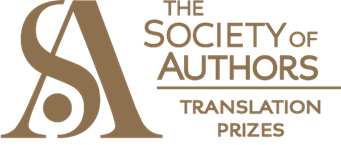 The Translation Prizes Award Ceremony, hosted by The Society of Authors, will take place on 12 February 2025 at the British Library, and will award eight translation prizes: the John Florio Prize (Italian biennial), the Premio Valle Inclán (Spanish), the Saif Ghobash Banipal Prize (Arabic), the Great Britain Sasakawa Foundation Translation Prize (Japanese), the Schlegel-Tieck Prize (German), the Scott Moncrieff Prize (French), the TA First Translation Prize (debut translation from any language into English) and the Vondel Translation Prize (Dutch triennial). Click for all information.
The Translation Prizes Award Ceremony, hosted by The Society of Authors, will take place on 12 February 2025 at the British Library, and will award eight translation prizes: the John Florio Prize (Italian biennial), the Premio Valle Inclán (Spanish), the Saif Ghobash Banipal Prize (Arabic), the Great Britain Sasakawa Foundation Translation Prize (Japanese), the Schlegel-Tieck Prize (German), the Scott Moncrieff Prize (French), the TA First Translation Prize (debut translation from any language into English) and the Vondel Translation Prize (Dutch triennial). Click for all information.
A CELEBRATION OF ARABIC LITERARY TRANSLATION – 13 February 2025
The Annual Lecture and the Winner of the 2024 Prize
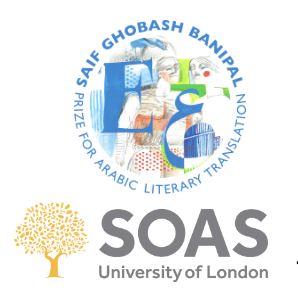 On Thursday 13 February 2025, from 6.00pm GMT, at the SOAS Brunei Gallery Lecture Theatre, the Banipal Trust for Arab Literature will co-host, with the SOAS School of Languages, Cultures and Linguistics, the SOAS Centre for Translation Studies and the SOAS Centre for Cultural, Literary and Postcolonial Studies, A Celebration of Arabic Literary Translation at which Prize-winner Katharine Halls will be in conversation with chair of judges Raphael Cohen, and professor and literary translator Margaret Litvin will give the Annual Lecture on the subject: Translating Beauty and Revolt in Arabic Literature Today. The event will be in-person and online, followed by a Q&A and a reception.
On Thursday 13 February 2025, from 6.00pm GMT, at the SOAS Brunei Gallery Lecture Theatre, the Banipal Trust for Arab Literature will co-host, with the SOAS School of Languages, Cultures and Linguistics, the SOAS Centre for Translation Studies and the SOAS Centre for Cultural, Literary and Postcolonial Studies, A Celebration of Arabic Literary Translation at which Prize-winner Katharine Halls will be in conversation with chair of judges Raphael Cohen, and professor and literary translator Margaret Litvin will give the Annual Lecture on the subject: Translating Beauty and Revolt in Arabic Literature Today. The event will be in-person and online, followed by a Q&A and a reception.
All welcome to this free event
Links below to register for either in-person or online attendance
or register directly from the SOAS website
_______________________________
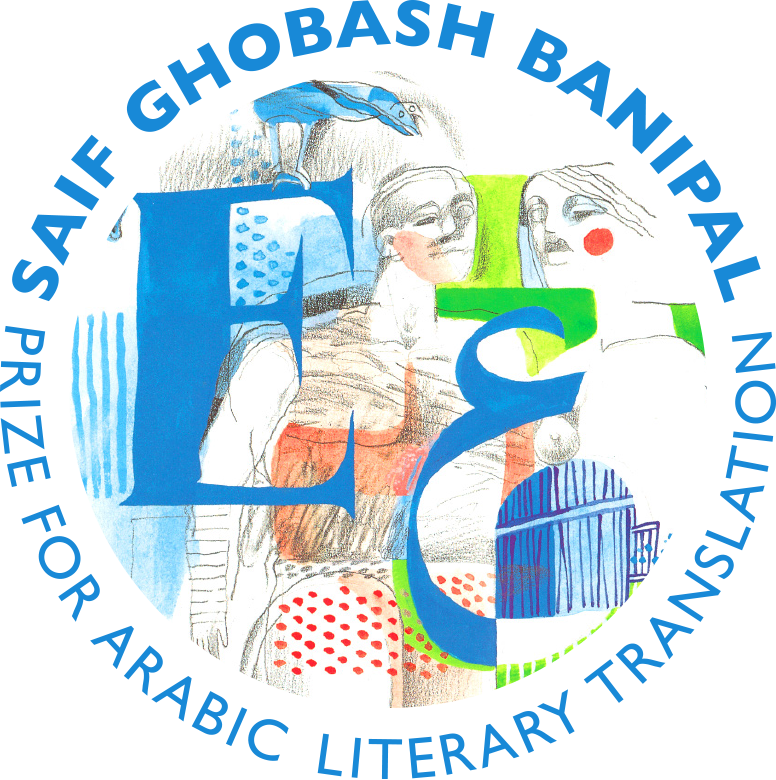
The 2024 Prize – The Shortlist
The Banipal Trust for Arab Literature is pleased to announce the shortlist of the 2024 Saif Ghobash Banipal Prize for Arabic Literary Translation. The judging panel of four comprised Raphael Cohen (Chair), freelance translator in the fields of literature (fiction and poetry), politics and development, Michael Caines, editor at the Times Literary Supplement and co-founder of the Brixton Review of Books, Laura Watkinson, award-winning literary translator, mainly from Dutch into English, but also from German, Italian and Frisian, and Nariman Youssef, literary translator and translation consultant.
In the nineteenth year of the prize there were 19 entries by 14 different publishers, with three making their first entry. They comprised ten novels, two short story collections, three poetry collections, two memoirs (one graphic), one literary biography and one work of YA fiction. There were 18 authors (ten women and eight men), one of whom has two entries. There were 20 translators (11 women, eight men and one non-binary person), two of whom have two entries.
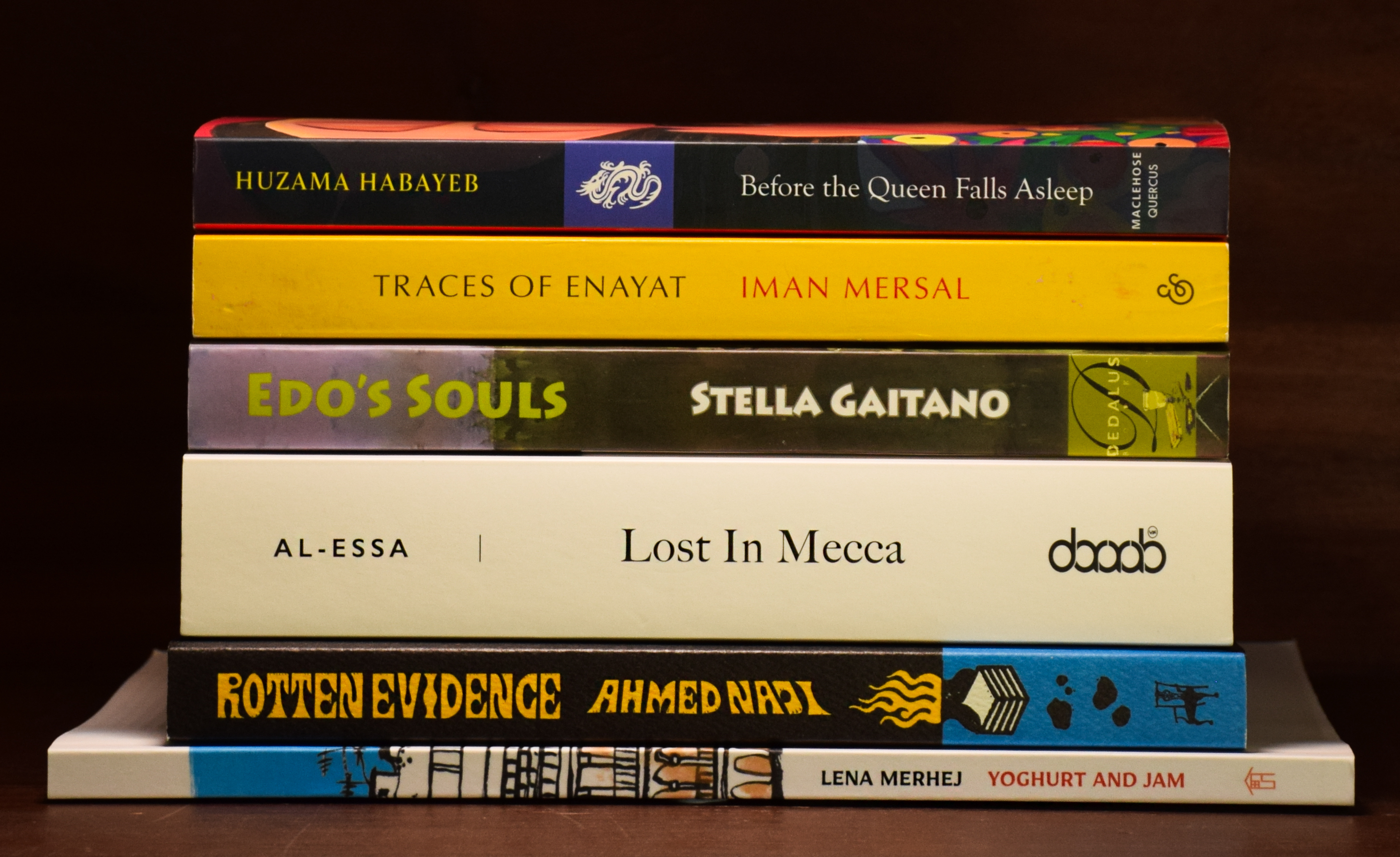
THE JUDGES’ REPORT
The six shortlisted works for the 2024 prize comprise three novels, a graphic memoir, a prison memoir and a biographical detective story. This diversity reflects that of this year’s entries, which included three poetry collections, two short story collections and a YA historical novel alongside other novels.
The judges were in almost complete agreement when it came to shortlisting three books: Lost in Mecca, Rotten Evidence and Traces of Enayat, all of which are thought-provoking, bold works of real creativity, and all of which have been translated with great care and reflection.
We felt, however, that other works deserved to be recognized on the shortlist and engaged in lengthy debate to select those that “raise the profile of contemporary Arabic literature”. In part we were guided in that task by the continuing darkness in the Arab region; this is reflected in our inclusion of works by authors from South Sudan, Lebanon and the Palestinian Diaspora.
Strikingly, five of the six shortlisted entries are authored by women. Furthermore, three of them deal explicitly with motherhood and the mother-child relationship, while a fourth charts the psychological collapse of a father and mother whose child is kidnapped. That said, all the works reflect universal concerns through specific local contexts and visions.
THE SHORTLISTED WORKS:
Before the Queen Falls Asleep by Huzama Habayeb, translated by Kay Heikkinen
published by MacLehose Press, 2024
Edo’s Souls by Stella Gaitano, translated by Sawad Hussain
published by Dedalus, 2023
Lost in Mecca by Bothayna Al-Essa, translated by Nada Faris
published by DarArab for Publishing and Translation, 2024
Rotten Evidence by Ahmed Naji, translated by Katharine Halls
published by McSweeney’s, 2023
Traces of Enayat by Iman Mersal, translated by Robin Moger
published by And Other Stories, 2023
Yoghurt and Jam (or How My Mother Became Lebanese) by Lena Merhej, translated by Nadiyah Abdullatif and Anam Zafar
published by Balestier Press, 2023
*
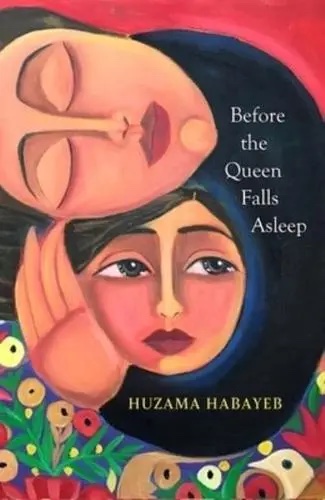
Before the Queen Falls Asleep
by Huzama Habayeb
translated by Kay Heikkinen
published by MacLehose Press, 2024
THE JUDGES WRITE:
Kay Heikkinen’s assured translation of Huzama Habayeb’s Before the Queen Falls Asleep earns her a place on the shortlist for 2024, after having won the prize in 2020 for her translation of the same author’s novel Velvet. Framed as a mother’s words to her daughter (the “queen”), the novel recounts the ordinary and extraordinary in the lives of an extended Palestinian family in Kuwait, before they are forced to leave following the Iraqi invasion of 1990. Highly intimate in tone and full of love and humour, the translation fizzes with energy and creativity and captures the playfulness of the original text.
As judge Michael Caines said, “This novel is a richly atmospheric tale of survival through decades of turmoil and a precious storehouse of family memories. While conjuring up the flavour of different times – some bitter, some sweet – it vividly evokes the relationships between the generations and all the ways in which momentous events can shape them.”
Judge Nariman Youssef added, “Habayeb’s narrator delicately navigates a web of belonging and letting go, hoping to pass on threads of community, rebellion, and resilience to her absent daughter. Heikkinen’s lively and nimble translation echoes Habayeb’s style – conversational yet poetic – and draws the reader into that same intricate web of intimate reminiscing.”
COMMENT FROM THE PUBLISHER
“We at MacLehose Press are delighted that Kay Heikkinen’s translation of Huzama Habayeb’s affecting and evocative novel has been shortlisted for this award. It has already been widely acclaimed both in the original Arabic and in English translation and we hope this recognition brings it the wider audience it so richly deserves. We would like to thank Elise Williams, the editor who brought the book to MacLehose Press, and Sawad Hussain, also shortlisted, who helped bring it to our attention. It has been a privilege to publish a novel that is so rich in stories, lore and heritage and has such a tender relationship at its heart.”
COMMENT FROM THE TRANSLATOR
Kay Heikkinen
“I am extremely grateful to the judges for including Huzama Habayeb’s novel, Before the Queen Falls Asleep, in the short list for this year’s Saif Ghobash Banipal Prize for Arabic Literary Translation! I believe her work speaks to our times, in its focus on perseverance against long odds and on resilience. I feel fortunate to have been able to bring this novel to readers of English, and I am deeply honored by this recognition of that work.”
ABOUT THE AUTHOR AND TRANSLATOR
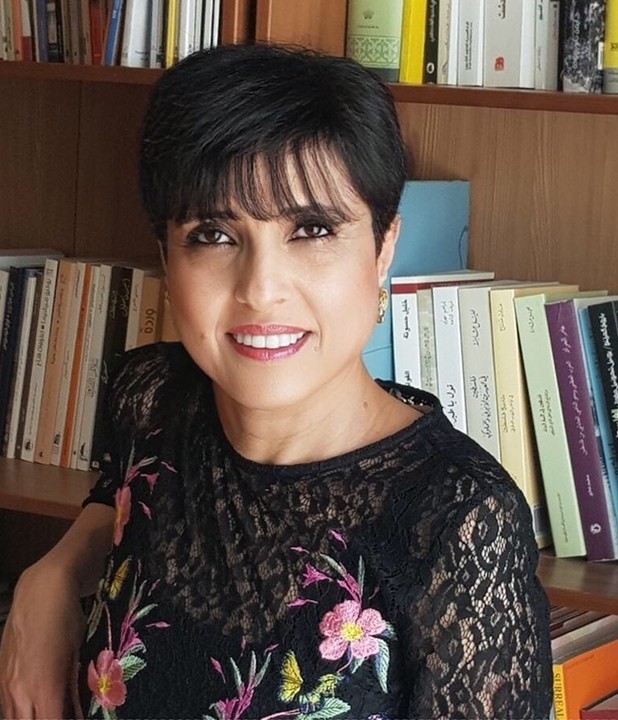 Huzama Habayeb is a Palestinian author and journalist. She was born in Kuwait, where she lived and worked as a journalist until she was forced to leave by the Gulf War. She settled in Jordan, establishing her reputation first as a short story writer, publishing her four prizewinning collections between 1992 and 2001, before publishing her first novel in 2007. Her first novel to be translated into English, Velvet, won the 2017 Naguib Mahfouz Medal for Literature and the 2020 Saif Ghobash Banipal Prize for Arabic Literary Translation. Before the Queen Falls Asleep is her second novel to be translated into English.
Huzama Habayeb is a Palestinian author and journalist. She was born in Kuwait, where she lived and worked as a journalist until she was forced to leave by the Gulf War. She settled in Jordan, establishing her reputation first as a short story writer, publishing her four prizewinning collections between 1992 and 2001, before publishing her first novel in 2007. Her first novel to be translated into English, Velvet, won the 2017 Naguib Mahfouz Medal for Literature and the 2020 Saif Ghobash Banipal Prize for Arabic Literary Translation. Before the Queen Falls Asleep is her second novel to be translated into English.
 Kay Heikkinen is a translator and academic who holds a PhD from Harvard University, and who was previously the Ibn Rushd Lecturer of Arabic at the University of Chicago. Her translations include Naguib Mahfouz’s In the Time of Love; Radwa Ashour’s The Woman from Tantoura and Granada: The Complete Trilogy; Huzama Habayeb’s Velvet (winner of the 2020 Saif Ghobash Banipal Prize) and Before the Queen Falls Asleep; as well as works by Mahmoud Saeed, Ibrahim Abdel Meguid and Taleb Alrefai. She lives in Seattle, Washington.
Kay Heikkinen is a translator and academic who holds a PhD from Harvard University, and who was previously the Ibn Rushd Lecturer of Arabic at the University of Chicago. Her translations include Naguib Mahfouz’s In the Time of Love; Radwa Ashour’s The Woman from Tantoura and Granada: The Complete Trilogy; Huzama Habayeb’s Velvet (winner of the 2020 Saif Ghobash Banipal Prize) and Before the Queen Falls Asleep; as well as works by Mahmoud Saeed, Ibrahim Abdel Meguid and Taleb Alrefai. She lives in Seattle, Washington.
*
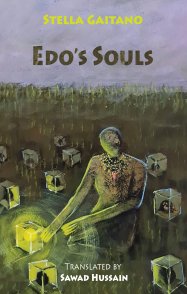
Edo’s Souls
by Stella Gaitano
translated by Sawad Hussain
published by Dedalus, 2023
THE JUDGES WRITE:
Sawad Hussain, previously shortlisted for the Saif Ghobash Banipal Prize in 2021 and 2023, has deservedly won a place on this year’s shortlist for her translation of Stella Gaitano’s sweeping epic Edo’s Souls, published by Dedalus, the first South Sudanese novel to receive a PEN Translates Award. Raphael Cohen, the chair of the judges for this year’s Saif Ghobash Banipal Prize, has pointed out that Edo’s Souls might be the first translation of a book by a South Sudanese woman into English, and it was also longlisted for the 2024 Warwick Women in Translation Prize.
Judge Nariman Youssef praised the translation as “engaging and empathetic”, remarking that Hussain’s translation presents “a plausible and dynamic world”.
Hussain ably captures Gaitano’s portrayal of the emotional worlds of characters who are confronted with the trauma and upheaval of civil war while struggling to build a home and a life for themselves. Set in Sudan in around the 1970s, with action shifting from a village setting to Juba and then northwards to Khartoum, where Lucy, the sole surviving child of her mother Edo, sets about recreating all the siblings she has lost. This important book makes this period of history vividly accessible to modern readers through a narrative that is admirably supported by Hussain’s flowing translation and deft turns of phrase.
COMMENT FROM THE PUBLISHER
“Edo’s Souls is our second book translated from Arabic and our first to be shortlisted for the Saif Ghobash Banipal Translation Prize. We have in Sawad Hussain an excellent translator and editor who allows us to open a window on the Arabic speaking world and places like South Sudan where so little of its culture gets translated into English. Stella Gaitano has found the perfect translator in Sawad Hussain and it is a collaboration which will continue to bear fruit.”
COMMENT FROM THE TRANSLATOR
Sawad Hussain
“It is an absolute honour to be shortlisted for the Saif Ghobash Banipal Prize for my translation of Edo’s Souls, especially as the entries this year by my colleagues were exceptional. As such, I do not take this recognition lightly! Translating Edo’s Souls, with the generous support of Stella Gaitano, has been a privilege. On a linguistic level, the book stands apart due to its searing imagery and startling turns of phrase. The central themes of unapologetic motherhood and womanhood were particularly inspiring while I battled personal obstacles. The kaleidoscope of perspectives portraying the upheaval of shifting from South Sudan to Khartoum was a challenge, as I initially struggled to make each voice distinct. However, after several rounds of trial and error, I am pleased with the results. I hope this will result in a wider readership for what I find to be an overlooked gem, and also serve as a springboard for Edo’s Souls to be translated into more languages.”
ABOUT THE AUTHOR AND TRANSLATOR
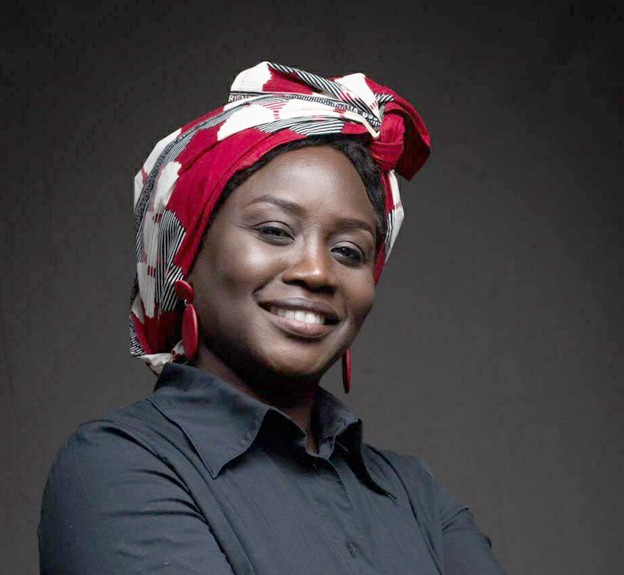 Stella Gaitano (b. 1979) was born in Khartoum into a South Sudanese family. She studied English and Arabic at Khartoum University and trained as a pharmacist. When the Sudan was partitioned, she moved to Juba, the capital of South Sudan in 2012. In 2015 Gaitano had to move back to Khartoum, after having been harassed and attacked due to her criticism of the South Sudanese government for what she saw as its mismanagement, corruption, and its role in the South Sudanese civil war. In 2022 Gaitano was awarded a fellowship by the PEN International Writers-in-Exile programme and moved to Germany. She has chosen to write in Arabic and has published two short story collections and the novel Edo’s Souls in 2018. Edo’s Souls is the first novel from South Sudan to be translated into English. Her short story collection Withered Flowers, translated by Anthony Calderbank, was published by Rafiki for Printing and Publishing, Juba in 2002 in a limited, now out of print edition.
Stella Gaitano (b. 1979) was born in Khartoum into a South Sudanese family. She studied English and Arabic at Khartoum University and trained as a pharmacist. When the Sudan was partitioned, she moved to Juba, the capital of South Sudan in 2012. In 2015 Gaitano had to move back to Khartoum, after having been harassed and attacked due to her criticism of the South Sudanese government for what she saw as its mismanagement, corruption, and its role in the South Sudanese civil war. In 2022 Gaitano was awarded a fellowship by the PEN International Writers-in-Exile programme and moved to Germany. She has chosen to write in Arabic and has published two short story collections and the novel Edo’s Souls in 2018. Edo’s Souls is the first novel from South Sudan to be translated into English. Her short story collection Withered Flowers, translated by Anthony Calderbank, was published by Rafiki for Printing and Publishing, Juba in 2002 in a limited, now out of print edition.
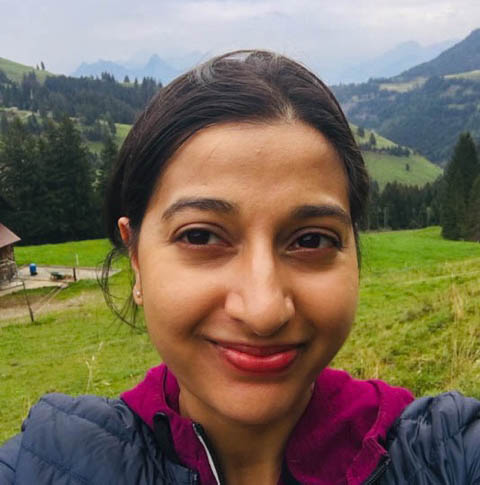 Sawad Hussain is a British Arabic-English literary translator and litterateur. She has translated two books for Dedalus: Catalogue of a Private Life by Najwa Bin Shatwan (2021) and Edo’s Souls by Stella Gaitano (2023). Her other translations include What Have You Left Behind? by Bushra al-Maqtari, which was shortlisted for the 2023 Saif Ghobash Banipal Prize, Shahla Ujayli’s short stories A Bed for the King’s Daughter, which was shortlisted for the 2021 Saif Ghobash Banipal Prize, Passage to the Plaza by Sahar Khalifeh, and the co-translation of Black Foam by Haji Jaber. She co-edited the Arabic-English section of the Oxford Arabic Dictionary (2014) and has lectured at the University of Exeter, and taught Arabic in Johannesburg and Dubai. She was the 2022 translator in residence at the British Centre for Literary Translation. She has an MA in Arabic literature from the School of Oriental and African Studies.
Sawad Hussain is a British Arabic-English literary translator and litterateur. She has translated two books for Dedalus: Catalogue of a Private Life by Najwa Bin Shatwan (2021) and Edo’s Souls by Stella Gaitano (2023). Her other translations include What Have You Left Behind? by Bushra al-Maqtari, which was shortlisted for the 2023 Saif Ghobash Banipal Prize, Shahla Ujayli’s short stories A Bed for the King’s Daughter, which was shortlisted for the 2021 Saif Ghobash Banipal Prize, Passage to the Plaza by Sahar Khalifeh, and the co-translation of Black Foam by Haji Jaber. She co-edited the Arabic-English section of the Oxford Arabic Dictionary (2014) and has lectured at the University of Exeter, and taught Arabic in Johannesburg and Dubai. She was the 2022 translator in residence at the British Centre for Literary Translation. She has an MA in Arabic literature from the School of Oriental and African Studies.
*
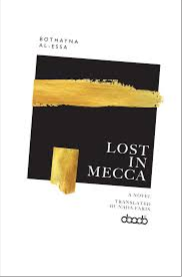
Lost in Mecca
by Bothayna Al-Essa
translated by Nada Faris
published by DarArab for Publishing and Translation, 2024
THE JUDGES WRITE:
Seasoned Kuwaiti novelist Bothayna Al-Essa is deservedly shortlisted for this dark literary thriller in a debut translation by Nada Faris. The novel opens with a vivid Hajj scene, where the chaos of the crowd leads to Mishari’s hand slipping out of his mother’s. This moment marks the beginning of a desperate quest that reveals, in Judge Raphael Cohen’s words, “the underbelly behind the marble, glass and concrete”.
Through a series of shocking revelations about Mishari’s whereabouts and the psychological unravelling of his parents, Al-Essa immerses readers in a world fraught with criminality and exploitation spanning Saudi Arabia and Egypt. While a work of considerable imagination, the author’s acknowledgements (only in the Arabic text) hint at substantial research that grounds the story in reality. The book is notable for its depiction of the psychological unravelling of Mishari’s parents, contrasted with the backdrop of the rituals of the Hajj. An initial façade of orderliness gives way to an unflinching examination of race and class politics and the fragility of both faith and privilege.
Faris’s translation manages to capture Al-Essa’s poetic style and preserve the urgency of the narrative, making this thought-provoking work both devastating and impactful.
Cohen described this novel as “full of powerful and shocking scenes and a real page turner”. He commended Nada Faris’s extended translator’s note and hoped it would encourage more translators to reflect on their practice.
For Judge Michael Caines, Lost in Mecca proved, from the very first page, “to be gripping and all too credible, as it reveals the full horror of a child abduction”. He added, “Skilfully narrated from multiple perspectives, the translator, editor (M. Lynx Qualey) and publisher all deserve praise for making Bothayna Al-Essa’s novel available to anglophone readers.”
COMMENT FROM THE PUBLISHER
Nasser Al Badri, Director, DarArab for Publishing and Translation
“At DarArab Publishing, we are profoundly honored to see Lost in Mecca by Bothayna Al-Essa, translated with precision and empathy by Nada Faris, recognized for the SGB Prize. This novel is a harrowing yet beautifully rendered journey through the labyrinth of grief, loss, and resilience. Al-Essa’s portrayal of a mother’s desperate search for her lost child amid the crowded Hajj pilgrimage encapsulates the intensity of human emotions, drawing readers into an intimate struggle within a sacred landscape. Nada Faris’s translation captures every nuance of Al-Essa’s prose, enabling English readers to experience the visceral, haunting depth of this story. This nomination reinforces our mission to bring compelling Arabic voices to a global audience, and we are thrilled to be part of the journey that Lost in Mecca is taking into readers’ hearts worldwide.”
COMMENT FROM THE TRANSLATOR
Nada Faris
“I am truly speechless! I have put my heart and soul into translating Bothayna Al-Essa’s novel, Lost in Mecca, taking extra care to capture the cadence and emotional impact of the original manuscript – which is an incredibly challenging read. If we have learned anything from the current tragedy in the Middle East it is that certain conversations must take place, no matter how uncomfortable they make us feel. For example, ‘How do we depict horror in literature?’ And, ‘What is the role of the artist today?’ I am excited to see how readers respond to Bothayna’s style and subject matter in a different language. I’m also deeply honored to have my first translation considered for such a prestigious award.”
ABOUT THE AUTHOR AND TRANSLATOR
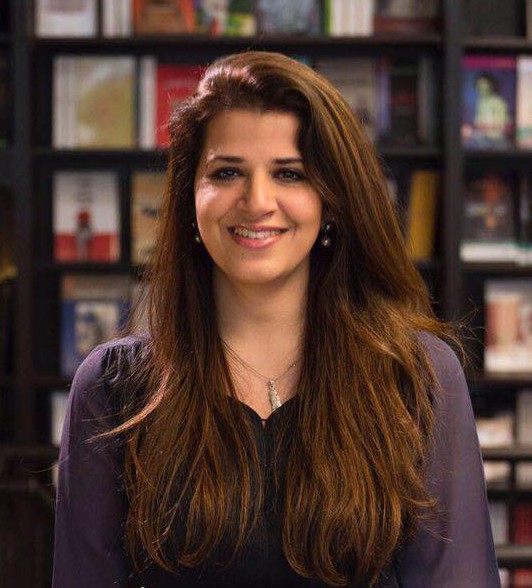 Bothayna Al-Essa (b. 1982) is a novelist from Kuwait. She holds a master’s in business administration from Kuwait University. She is the co-founder of Takween (a cultural platform, bookstore, and publishing house) and the author of ten novels, the most notable of which include: Lost in Mecca and All That I Want to Forget, which have been translated into English; Under the Feet of Mothers, which has been translated into Persian; and Guardian of Superficialities, which will be published in English in 2024. Furthermore, Al-Essa has written books on writing and has offered writing workshops throughout the Arab region. She has been writing full-time since 2013 and won Kuwait’s National Encouragement Award twice for her fiction: in 2003 and 2012.
Bothayna Al-Essa (b. 1982) is a novelist from Kuwait. She holds a master’s in business administration from Kuwait University. She is the co-founder of Takween (a cultural platform, bookstore, and publishing house) and the author of ten novels, the most notable of which include: Lost in Mecca and All That I Want to Forget, which have been translated into English; Under the Feet of Mothers, which has been translated into Persian; and Guardian of Superficialities, which will be published in English in 2024. Furthermore, Al-Essa has written books on writing and has offered writing workshops throughout the Arab region. She has been writing full-time since 2013 and won Kuwait’s National Encouragement Award twice for her fiction: in 2003 and 2012.
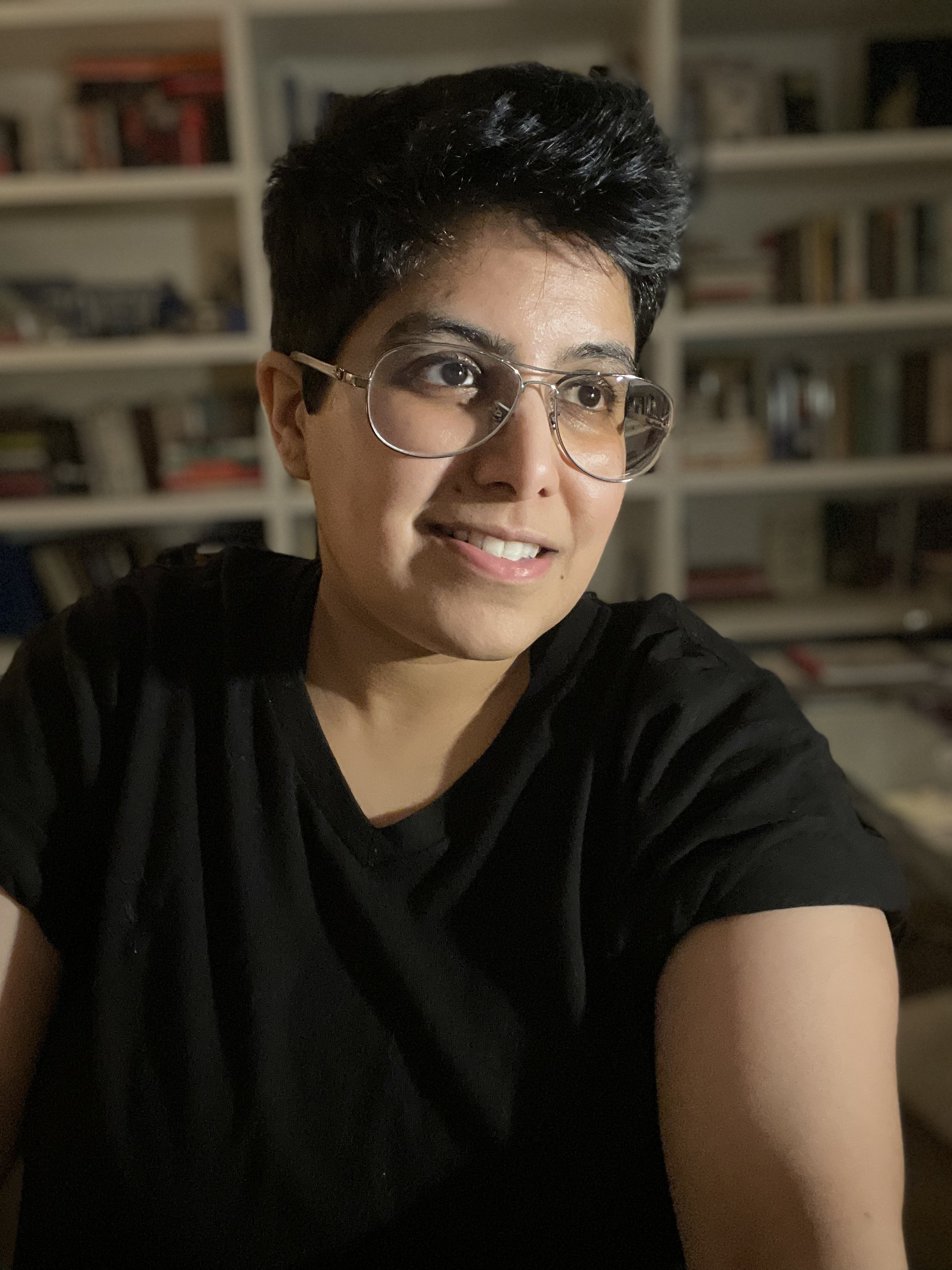 Nada Faris is a writer and literary translator, born and raised in Kuwait. In 2018, she received an Arab Woman Award from Harper’s Bazaar Arabia for her impact on creatives in Kuwait. She is an Honorary Fellow in Writing at Iowa University’s International Writing Program (IWP) Fall 2013; and an alumna of the International Visitor Leadership Program (IVLP) April 2018: Empowering Youth Through the Performing Arts. Faris holds an MFA in Creative Writing (Poetry & Literary Translation) from Columbia University. She is, furthermore, the author of multiple books in different genres. Her shorter works have appeared in: The Norton Anthology for Hint Fiction, Gulf Coast Journal, Indianapolis Review, Nimrod, Tribes, One Jacar, The American Journal of Poetry and more. Lost in Mecca is her first literary translation.
Nada Faris is a writer and literary translator, born and raised in Kuwait. In 2018, she received an Arab Woman Award from Harper’s Bazaar Arabia for her impact on creatives in Kuwait. She is an Honorary Fellow in Writing at Iowa University’s International Writing Program (IWP) Fall 2013; and an alumna of the International Visitor Leadership Program (IVLP) April 2018: Empowering Youth Through the Performing Arts. Faris holds an MFA in Creative Writing (Poetry & Literary Translation) from Columbia University. She is, furthermore, the author of multiple books in different genres. Her shorter works have appeared in: The Norton Anthology for Hint Fiction, Gulf Coast Journal, Indianapolis Review, Nimrod, Tribes, One Jacar, The American Journal of Poetry and more. Lost in Mecca is her first literary translation.
*

Rotten Evidence
by Ahmed Naji
translated by Katharine Halls
published by McSweeney’s, 2023
THE JUDGES WRITE:
If Ahmed Naji had known the consequences of writing his novel The Use of Life [The English translation, Using Life, by Ben Koerber was shortlisted for the 2018 SGB Prize.], would he have ever written it? “Was it really worth it? Is the written word worth so huge a sacrifice?” he wonders at moments of despair in prison. Publication of a chapter of that novel in an Egyptian literary magazine throws him into a Kafkaesque confrontation with the Egyptian authorities, and he serves ten months in prison for violating public decency. Rotten Evidence: Reading and Writing in an Egyptian Prison charts his journey through the courts and prison in a narrative that mixes details of his life and his case with the reality of prison and oppression in Egypt. He also meditates on a wide range of topics including prison literature and libraries, sexual vocabulary in Arabic, and his childhood experiences as son of a leading figure in the local branch of the Muslim Brotherhood. Katharine Hall’s wonderful translation captures the emotional range of the book which ranges from blackest humour to blackest despair.
Judge Laura Watkinson commented, “This is a book and a world that I became absorbed in, both because of the content and the superb translation.”
COMMENT FROM THE TRANSLATOR
Katharine Halls
“I am thrilled that my work has been shortlisted for the Saif Ghobash Banipal Prize – a veritable institution in the world of literary translation from Arabic – and hope the news will encourage more people to go out and buy this bold, timely book. At a time when large swathes of the world are embracing fascism and wilful idiocy, writers like Ahmed Naji, with his disdain for authority and irreverent sense of humour, show us the way forward.”
ABOUT THE AUTHOR AND TRANSLATOR
 Ahmed Naji, born in Menyet Sandoub, Eygpt in 1985, is a writer, journalist, documentary filmmaker and 'criminal'. His memoir Rotten Evidence: Reading and Writing in an Egyptian Prison is shortlisted for the 2024 Saif Ghobash Banipal Prize and was a finalist in the 2023 National Book Critics Circle Award in the US. His novel The Use of Life (2014), whose English translation, Using Life, by Ben Koerber was shortlisted for the 2018 Saif Ghobash Banipal Prize, made him the first writer in Egyptian history to be imprisoned for offending public morality. He is the author of three other novels Rogers (2007), And Tigers to my Room (2020), and Happy Endings (2023). Naji has won several prizes, including a Dubai Press Club Arab Journalism Award and a PEN/Barbey Freedom to Write Award. He was a City of Asylum Fellow at the Beverley Rogers, Carol C. Harter Black Mountain Institute in Las Vegas, where he currently lives with his family.
Ahmed Naji, born in Menyet Sandoub, Eygpt in 1985, is a writer, journalist, documentary filmmaker and 'criminal'. His memoir Rotten Evidence: Reading and Writing in an Egyptian Prison is shortlisted for the 2024 Saif Ghobash Banipal Prize and was a finalist in the 2023 National Book Critics Circle Award in the US. His novel The Use of Life (2014), whose English translation, Using Life, by Ben Koerber was shortlisted for the 2018 Saif Ghobash Banipal Prize, made him the first writer in Egyptian history to be imprisoned for offending public morality. He is the author of three other novels Rogers (2007), And Tigers to my Room (2020), and Happy Endings (2023). Naji has won several prizes, including a Dubai Press Club Arab Journalism Award and a PEN/Barbey Freedom to Write Award. He was a City of Asylum Fellow at the Beverley Rogers, Carol C. Harter Black Mountain Institute in Las Vegas, where he currently lives with his family.

*
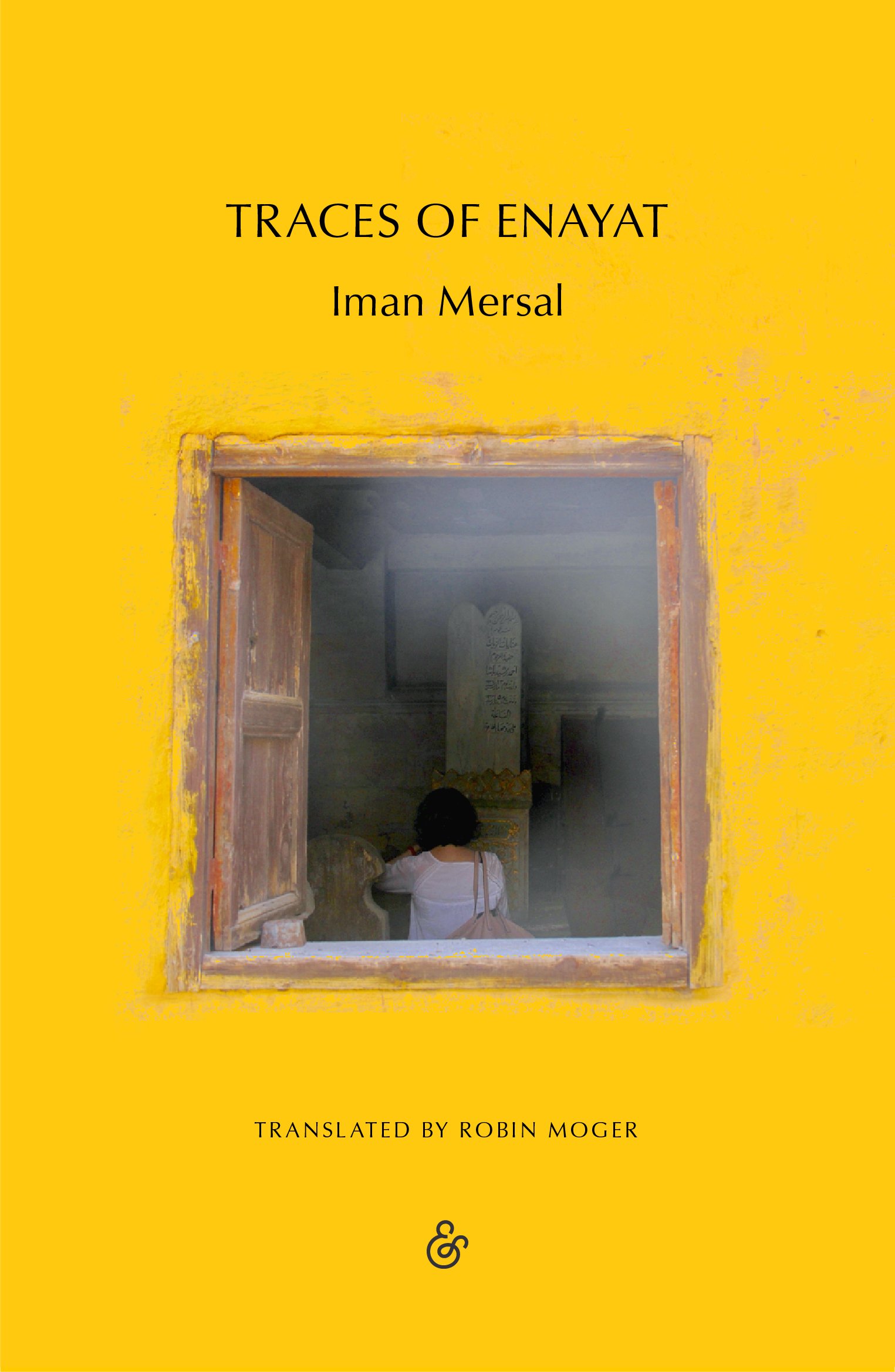
Traces of Enayat
by Iman Mersal
translated by Robin Moger
published by And Other Stories, 2023
THE JUDGES WRITE:
The Egyptian writer Enayat al-Zayyat, who committed suicide in 1963, had been largely forgotten when the poet Iman Mersal happened to read her only novel, Love and Silence, some three decades later. Over many subsequent years, through painstaking research and the odd lucky chance, Mersal pieced together the story of Enayat’s life – an extraordinary biographical pursuit that leads the reader deep into the history of Cairo, of Egyptian cinema and literature, of dubious medical practices, and of equally dubious divorce laws. Sharply translated by Robin Moger, Traces of Enayat connects these disparate elements to tell an intriguing and engaging story about the nature of biography itself as well as Mersal’s elusive subject.
As Judge Michael Caines put it, “The pursuit of an elusive biographical subject here becomes interwoven with the history of Cairo itself – and so the pursuit of Enayat, with all its serendipitous discoveries and mystifying dead ends, becomes the story of recovering a lost world, too. This is an engrossing and necessary feat of feminist detective work.”
Judge Laura Watkinson added, “That bold first sentence (‘But...’) is the start of a self-assured and beautifully crafted translation that is full of musical sentences and glorious turns of phrase. Moger has created a poetic and captivating text that very much deserves its place on this list.”
COMMENT FROM THE TRANSLATOR
Robin Moger
“It’s a great feeling to learn that the judges have selected Iman’s extraordinary investigation into Enayat’s life and afterlife for the Banipal Prize shortlist. It’s a really special book that was a joy to work on with Iman and its editors and I wish for it as many readers as possible.”
ABOUT THE AUTHOR AND TRANSLATOR
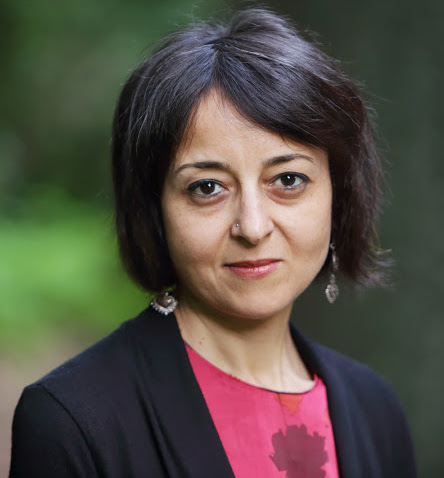 Iman Mersal (b. 1966) is a poet, writer, academic and translator. She was born in the northern Egyptian Delta and emigrated to Canada in 1999. First published in Arabic in 2019, Traces of Enayat won the prestigious 2021 Sheikh Zayed Book Award, making Mersal the first woman to win its Literature category. Her recent poetry collection is The Threshold, shortlisted for the 2023 Griffin Poetry Award. She also wrote How to Mend: Motherhood and Its Ghosts (2018), which weaves a new narrative of motherhood through diaries, readings and photographs. Mersal’s work has also appeared in Banipal, The Paris Review, The New York Review of Books and The Nation. She works as an Associate Professor of Arabic Literature at the University of Alberta, Canada.
Iman Mersal (b. 1966) is a poet, writer, academic and translator. She was born in the northern Egyptian Delta and emigrated to Canada in 1999. First published in Arabic in 2019, Traces of Enayat won the prestigious 2021 Sheikh Zayed Book Award, making Mersal the first woman to win its Literature category. Her recent poetry collection is The Threshold, shortlisted for the 2023 Griffin Poetry Award. She also wrote How to Mend: Motherhood and Its Ghosts (2018), which weaves a new narrative of motherhood through diaries, readings and photographs. Mersal’s work has also appeared in Banipal, The Paris Review, The New York Review of Books and The Nation. She works as an Associate Professor of Arabic Literature at the University of Alberta, Canada.
 Robin Moger is a translator of contemporary Arabic prose and poetry, living in Barcelona, and twice winner of the Saif Ghobash Banipal Prize. His recent translations include Slipping by Mohammed Kheir (Two Lines Press), which won the 2022 Saif Ghobash Banipal Prize, Haytham El Wardany’s The Book of Sleep (Seagull), Agitated Air: Poems after Ibn Arabi with Yasmine Seale (Tenement Press) and The Book of Safety by Yasser Abdel Hafez, which won the 2017 Saif Ghobash Banipal Prize. Further translations are Otared by Mohammad Rabie, Youssef Rakha’s The Crocodiles and Nael Eltoukhy’s novel Women of Karantina (AUC Press, 2014). He was one of the translators for Writing Revolution: The Voices from Tunis to Damascus (I. B. Tauris, 2013), which won the 2013 English PEN Award for outstanding writing in translation. Short translations have appeared in Banipal, Blackbox Manifold, The White Review, Asymptote, Words Without Borders, Washington Square Review and Michigan Review.
Robin Moger is a translator of contemporary Arabic prose and poetry, living in Barcelona, and twice winner of the Saif Ghobash Banipal Prize. His recent translations include Slipping by Mohammed Kheir (Two Lines Press), which won the 2022 Saif Ghobash Banipal Prize, Haytham El Wardany’s The Book of Sleep (Seagull), Agitated Air: Poems after Ibn Arabi with Yasmine Seale (Tenement Press) and The Book of Safety by Yasser Abdel Hafez, which won the 2017 Saif Ghobash Banipal Prize. Further translations are Otared by Mohammad Rabie, Youssef Rakha’s The Crocodiles and Nael Eltoukhy’s novel Women of Karantina (AUC Press, 2014). He was one of the translators for Writing Revolution: The Voices from Tunis to Damascus (I. B. Tauris, 2013), which won the 2013 English PEN Award for outstanding writing in translation. Short translations have appeared in Banipal, Blackbox Manifold, The White Review, Asymptote, Words Without Borders, Washington Square Review and Michigan Review.
*
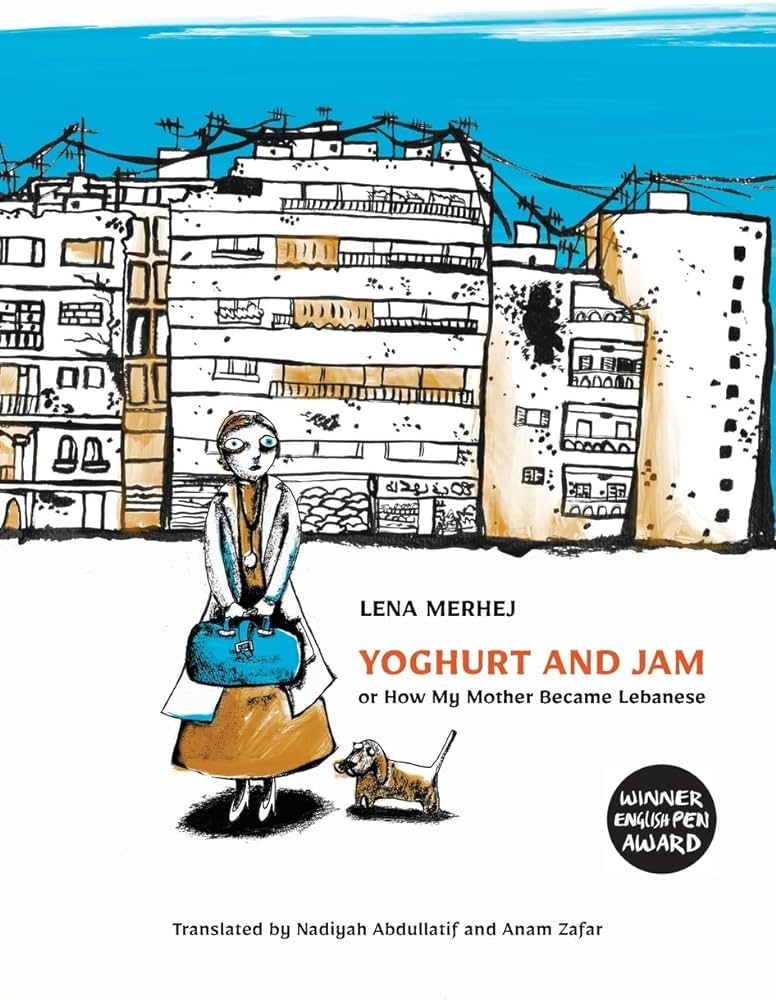
Yoghurt and Jam (or How My Mother Became Lebanese)
by Lena Merhej
translated by Nadiyah Abdullatif and Anam Zafar
published by Balestier Press, 2023
THE JUDGES WRITE:
This delightful graphic memoir offers an exploration of multi-cultural identity and familial relationships that is as poignant and self-aware as it is light and humorous. Merhej grapples with family lore and generational trauma through the story of her German mother’s transformation after moving to Beirut. Abdullatif and Zafar’s translation is seamless, retaining enough Arabic and French to create a narrative voice that is distinctly Lebanese.
The clever use of food, recipes, and everyday objects offers vivid glimpses of Lebanese history and customs and adds depth and sensory richness to the narrative. But this memoir is by no means just a light-hearted catalogue of cultural paraphernalia. The complexities of assimilation and belonging play out against the backdrop of Europe’s and Lebanon’s histories of war. Yoghurt and Jam is an elegantly translated insightful and entertaining read with several layers of resonance.
Judge Nariman Youssef remarked, “What really stood out for me in this book were Merhej’s reflections on where memory and imagination intersect, a much-needed reminder of the power of creativity in making sense of one’s place in the world.”
COMMENT FROM THE TRANSLATORS
Nadiyah Abdullatif and Anam Zafar
“It means so much to us to see Lena Merhej’s Yoghurt and Jam shortlisted for this prize – not only because it was our first published full-length translation, but also because this will help bring attention to her touching, insightful graphic memoir. The book’s exploration of the damage caused by war and intergenerational trauma is highly relevant right now, while the humorous depiction of tender childhood memories, quirky family traditions and culinary culture shock capture all aspects of life, helping us remember that every person living through war is just that – a person with a unique history, personality and world. We are so grateful to Lena for trusting us with her work and for being a vital, encouraging voice during the translation process with us, and to Roh Suan-Tung, who showed enthusiasm from day one, choosing this project as Balestier Press’s first translation from Arabic.”
ABOUT THE AUTHOR AND TRANSLATORS
Lena Merhej is a visual storyteller and an expert in graphic narration. Lena has taught at several universities in Beirut. She is the founder and director of the Story Center, which offers professional training in animation, illustration, and comic books. Lena was the director of the Beirut Animated Festival, and worked with Tosh Fesh to promote comics and animation in Arab countries. She has illustrated over twenty-five Arabic children’s books and has exhibited her work both locally and internationally. Her animated Drawing the War (2002), her comic book Kamen Sine (Another year, 2009) and her book Murabba wa laban (Yoghurt and Jam) have won international awards. She is a co-founder and a member of Samandal, an award-winning comics organization in Lebanon.
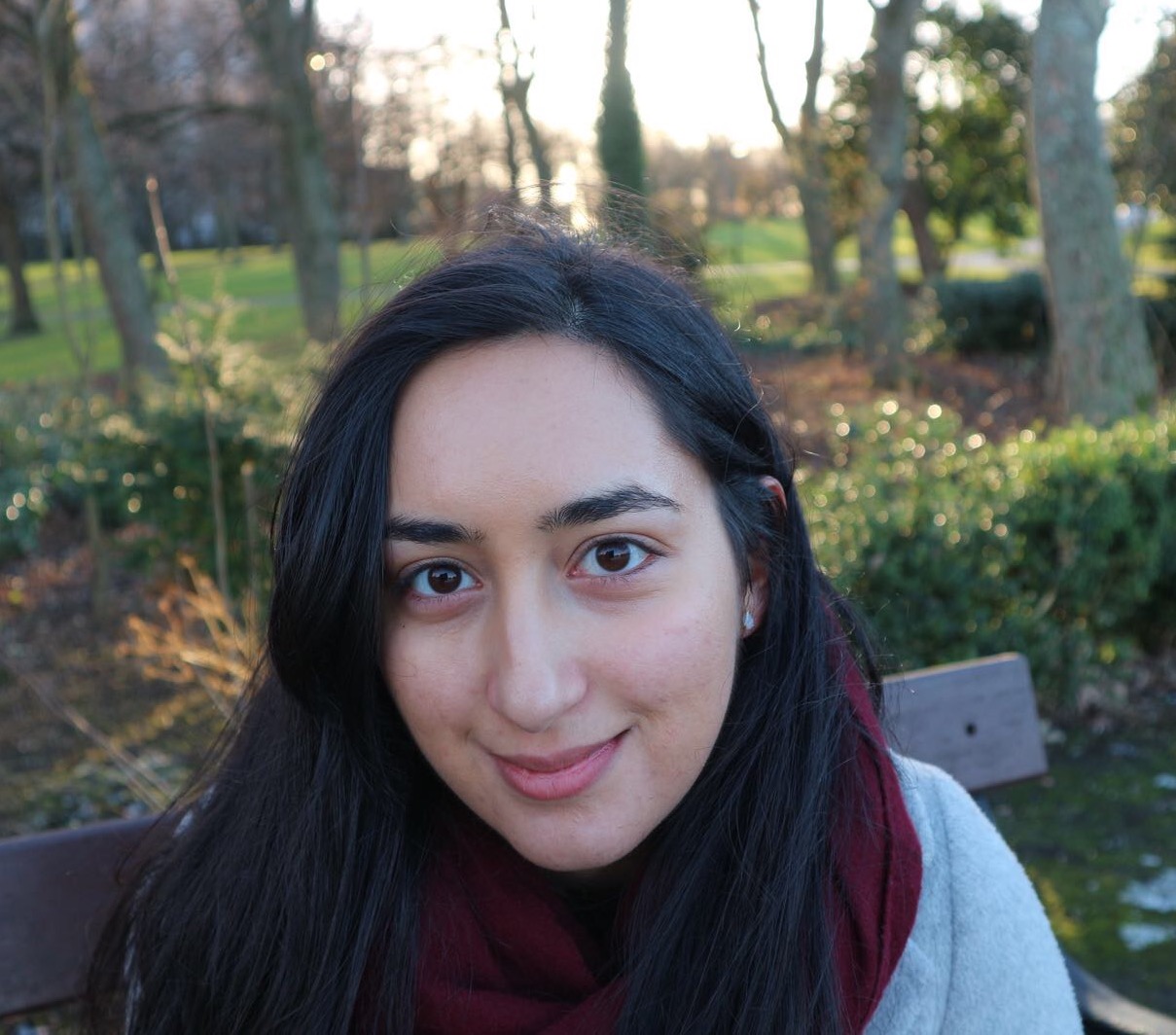 Nadiyah Abdullatif is a Mauritius-born, Scotland-based editor and translator working from Arabic, French, Mauritian Creole and Spanish into English. Her translations of Mauritian literature, comics and graphic novel excerpts have appeared in Wasafiri, ArabLit Quarterly and The Markaz Review. Her latest project, a co-translation of a Lebanese graphic novel titled Yoghurt and Jam (or How My Mother Became Lebanese) (Balestier Press, 2023), received a PEN Translates Award.
Nadiyah Abdullatif is a Mauritius-born, Scotland-based editor and translator working from Arabic, French, Mauritian Creole and Spanish into English. Her translations of Mauritian literature, comics and graphic novel excerpts have appeared in Wasafiri, ArabLit Quarterly and The Markaz Review. Her latest project, a co-translation of a Lebanese graphic novel titled Yoghurt and Jam (or How My Mother Became Lebanese) (Balestier Press, 2023), received a PEN Translates Award.
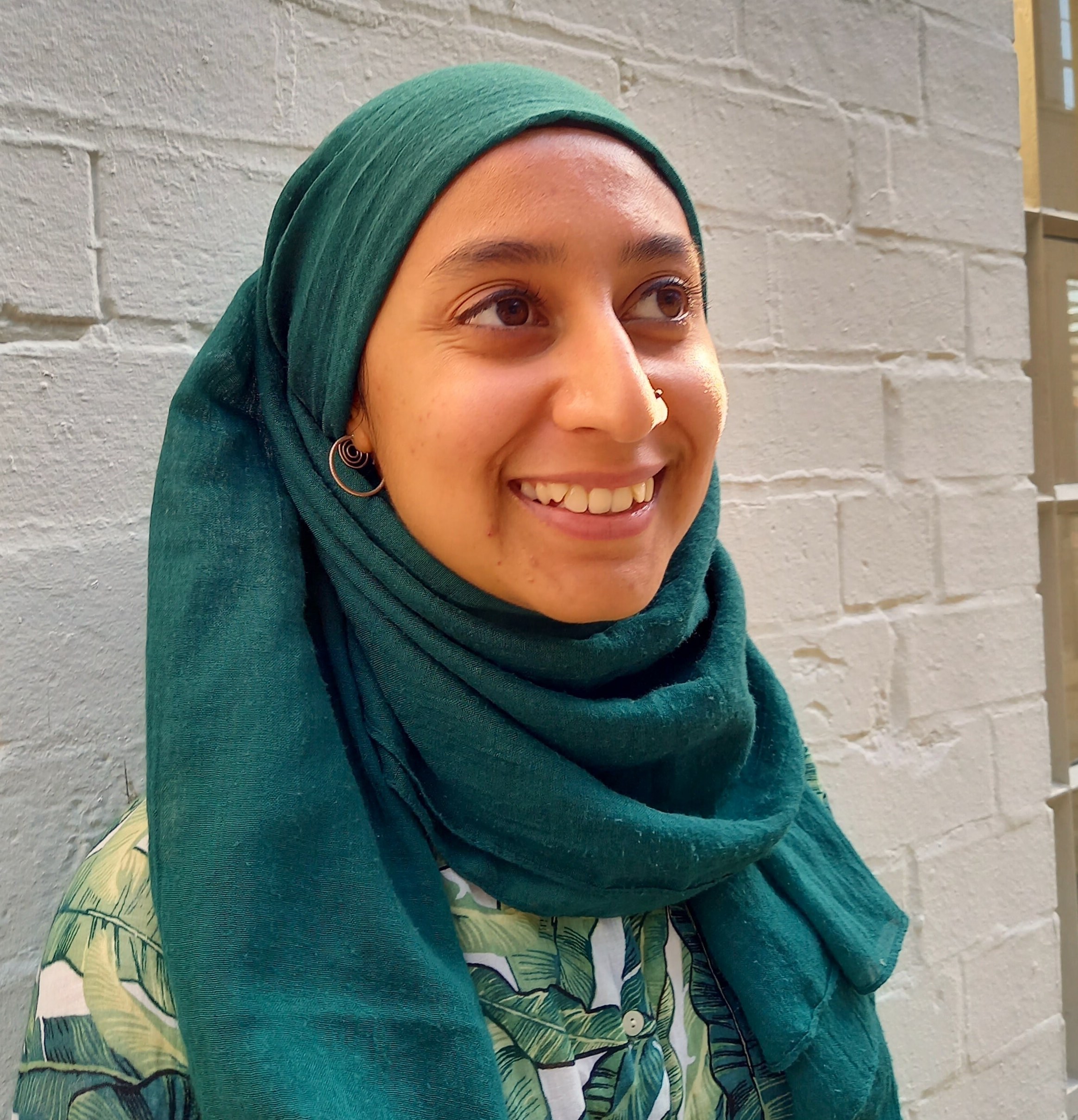 Anam Zafar translates from Arabic and French to English. She received a PEN Translates Award for her co-translation, with Nadiyah Abdullatif, of the graphic memoir Yoghurt and Jam (or How My Mother Became Lebanese) by Lena Merhej (Balestier Press, 2023). In 2021 she received the Gulf Coast Prize in Translation and the Stinging Fly New Translator’s Bursary. She designs and delivers creative translation workshops, volunteers for World Kid Lit, is a member of the Translators Association’s Access Working Group and is an Editorial Board member for The Linguist magazine.
Anam Zafar translates from Arabic and French to English. She received a PEN Translates Award for her co-translation, with Nadiyah Abdullatif, of the graphic memoir Yoghurt and Jam (or How My Mother Became Lebanese) by Lena Merhej (Balestier Press, 2023). In 2021 she received the Gulf Coast Prize in Translation and the Stinging Fly New Translator’s Bursary. She designs and delivers creative translation workshops, volunteers for World Kid Lit, is a member of the Translators Association’s Access Working Group and is an Editorial Board member for The Linguist magazine.
*
For the judges' profiles, click on this link: https://www.banipaltrust.org.uk/prize/judges2024
For general information about the prize,click on this link: https://www.banipaltrust.org.uk/prize/
For information about the Society of Authors and the Translation Prizes administered, click on this link: https://www2.societyofauthors.org/prizes/translation-prizes/
For the Saif Ghobash Banipal Prize webpage with the Society of Authors, the administrator of the prize: https://societyofauthors.org/prizes/translation-prizes/arabic-saif-ghobash
For all information about the Prize's Annual Lecture, click on this link: https://www.banipaltrust.org.uk/lecture/
For all information about the Rules of the prize, click on this link: https://www.banipaltrust.org.uk/rules/
For all information about the Prize's Sponsor, click on this link: https://www.banipaltrust.org.uk/the_sponsor/
The Winner of the Prize will be announced on 8 January 2025.
___________________________________________
In the nineteenth year of the prize there are now 19 entries by 14 different publishers. They comprise ten novels, two short story collections, three poetry collections, two memoirs (one of which is graphic), one literary biography, and one work of YA fiction.
There are 18 authors (ten women and eight men), one of whom has two entries, and 20 translators (11 women, eight men, and one non-binary person), two of whom appear twice. The entries are listed, title first, in alphabetical order by the translator’s surname, or by the first translator’s surname when there are two.

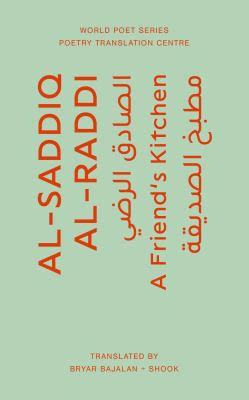
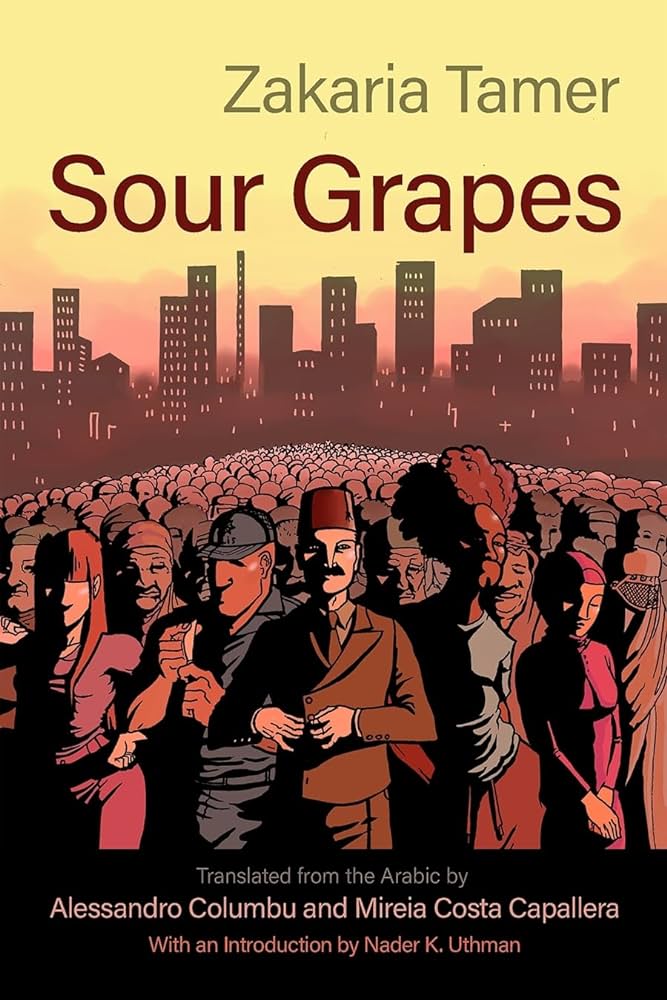
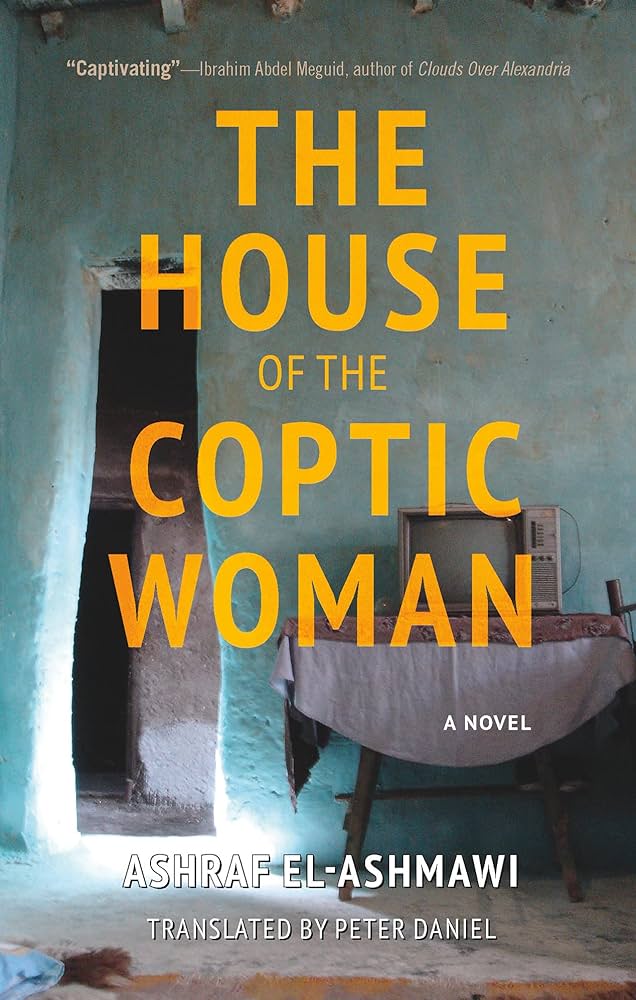
Yoghurt and Jam: or How My Mother Became Lebanese by Lena Merhej, translated by Nadiyah Abdullatif and Anam Zafar (Balestier Press)
A Friend’s Kitchen by Al-Saddiq Al-Raddi, translated by Bryar Bajalan and Shook (Poetry Translation Centre)
Sour Grapes by Zakaria Tamer, translated by Alessandro Columbu and Mireia Costa Capallera (Syracuse University Press)
The House of the Coptic Woman by Ashraf El-Ashmawi, translated by Peter Daniel (Hoopoe, an Imprint of AUC Press)
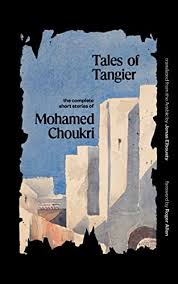
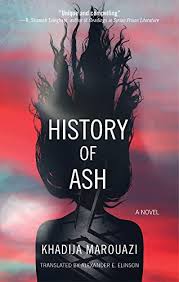
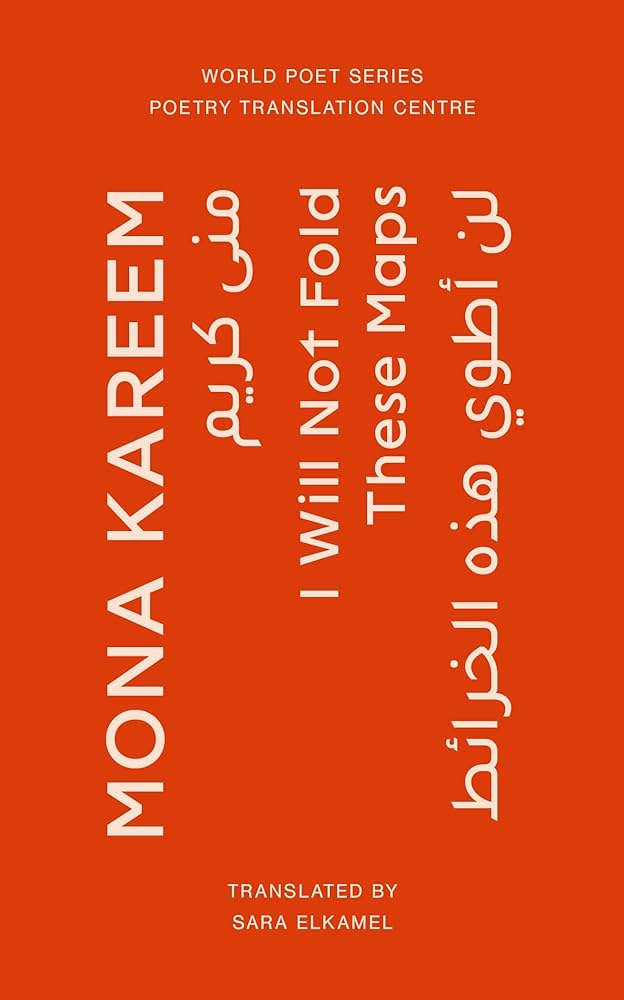

Tales of Tangier: The Complete Short Stories of Mohamed Choukri by Mohamed Choukri, translated by Jonas Elbousty (Yale University Press)
History of Ash by Khadija Marouazi, translated by Alexander E. Elinson (Hoopoe an Imprint of AUC Press)
I Will Not Fold These Maps by Mona Kareem, translated by Sara Elkamel (Poetry Translation Centre)
Lost in Mecca by Bothayna Al-Essa, translated by Nada Faris (DarArab for Publishing and Translation)

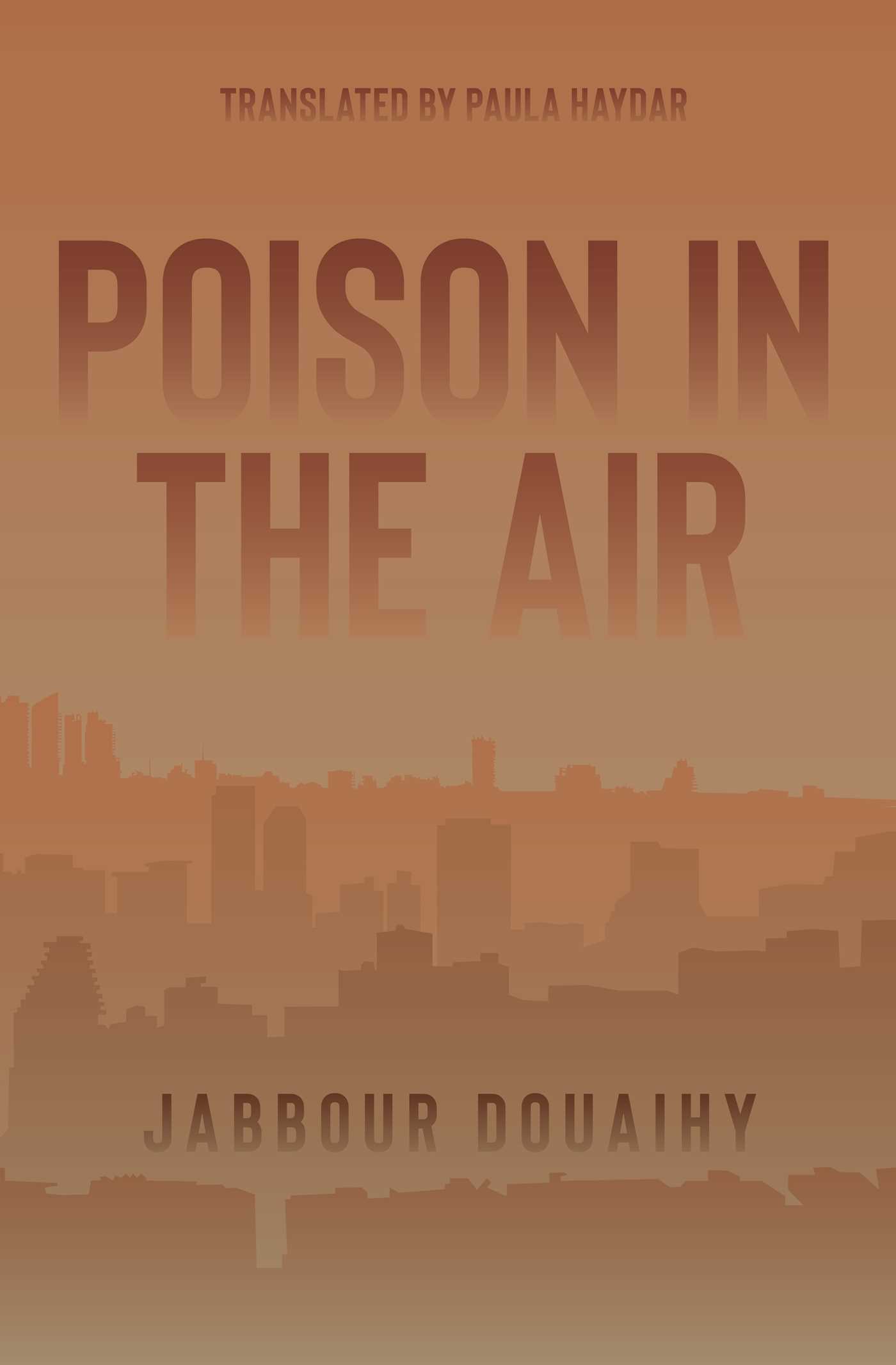


Rotten Evidence by Ahmed Naji, translated by Katharine Halls (McSweeney’s)
Poison in the Air by Jabbour Douaihy, translated by Paula Haydar (Interlink Books)
Before the Queen Falls Asleep by Huzama Habayeb, translated by Kay Heikkinen (MacLehose Press)
Edo’s Souls by Stella Gaitano, translated by Sawad Hussain (Dedalus)
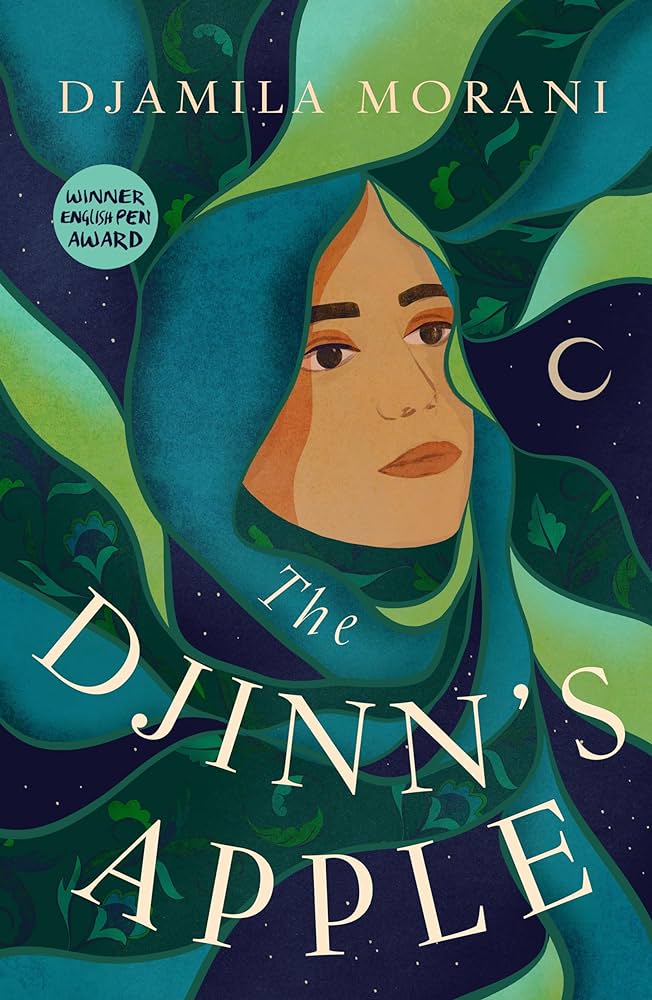
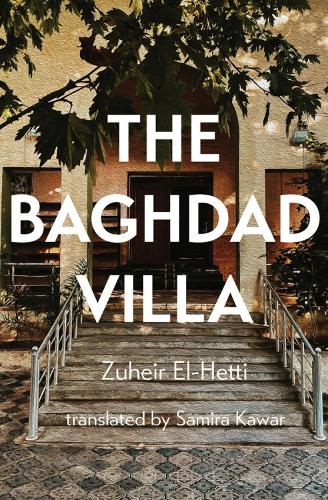

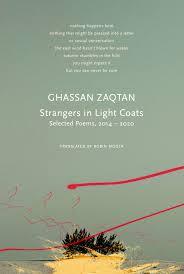
The Djinn’s Apple by Djamila Morani, translated by Sawad Hussain (Neem Tree Press)
The Baghdad Villa by Zuheir El-Hetti, translated by Samira Kawar (Interlink Books)
Traces of Enayat by Iman Mersal, translated by Robin Moger (And Other Stories)
Strangers in Light Coats: Selected Poems, 2014–2020 by Ghassan Zaqtan, translated by Robin Moger (Seagull Books)
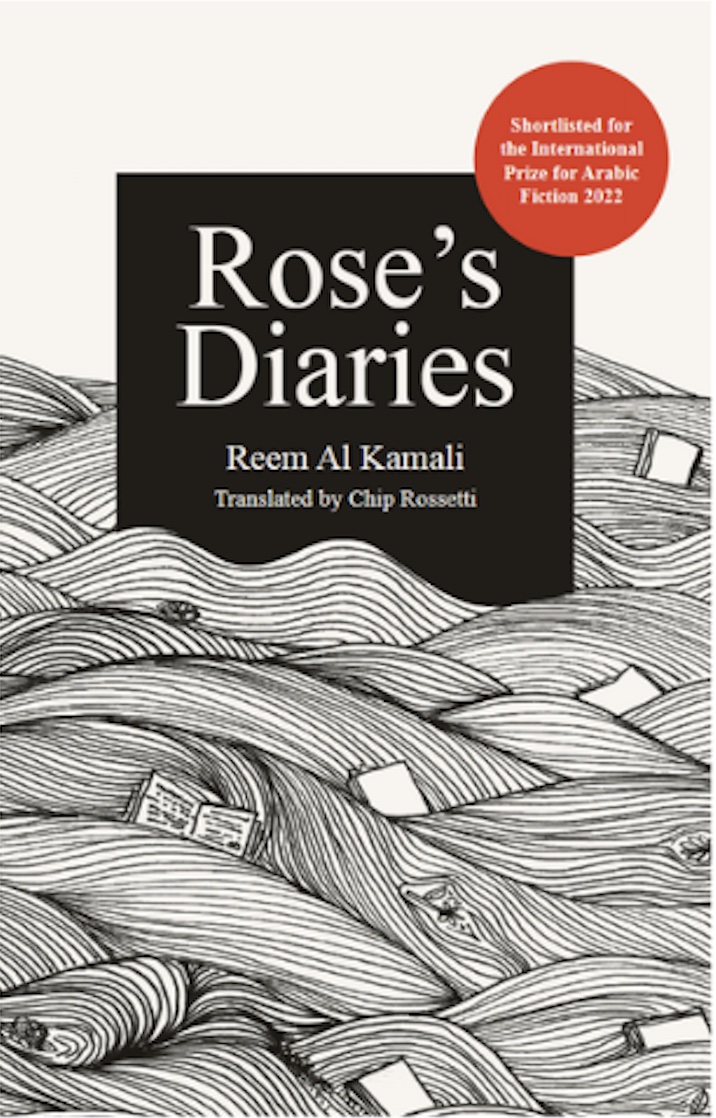
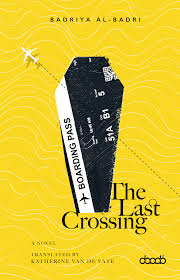
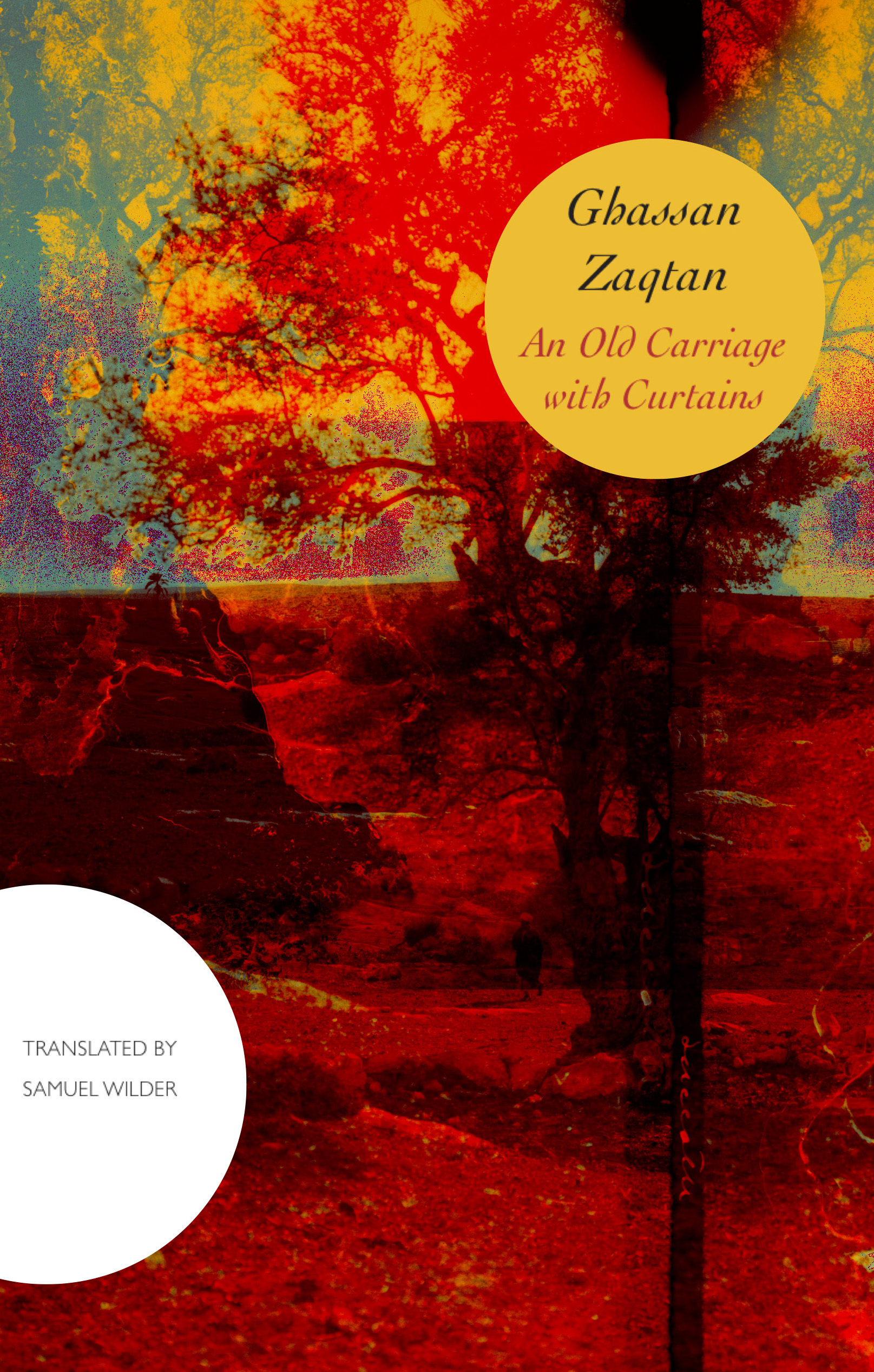
Rose’s Diaries by Reem Al Kamali, translated by Chip Rossetti (ELF Publishing)
The Last Crossing by Badriya Al-Badri, translated by Katherine Van De Vate (DarArab for Publishing and Translation)
An Old Carriage with Curtains by Ghassan Zaqtan, translated by Samuel Wilder (Seagull Books)
* * *
The Prize is administered by the UK’s Society of Authors,
alongside nine other literary translation prizes.



